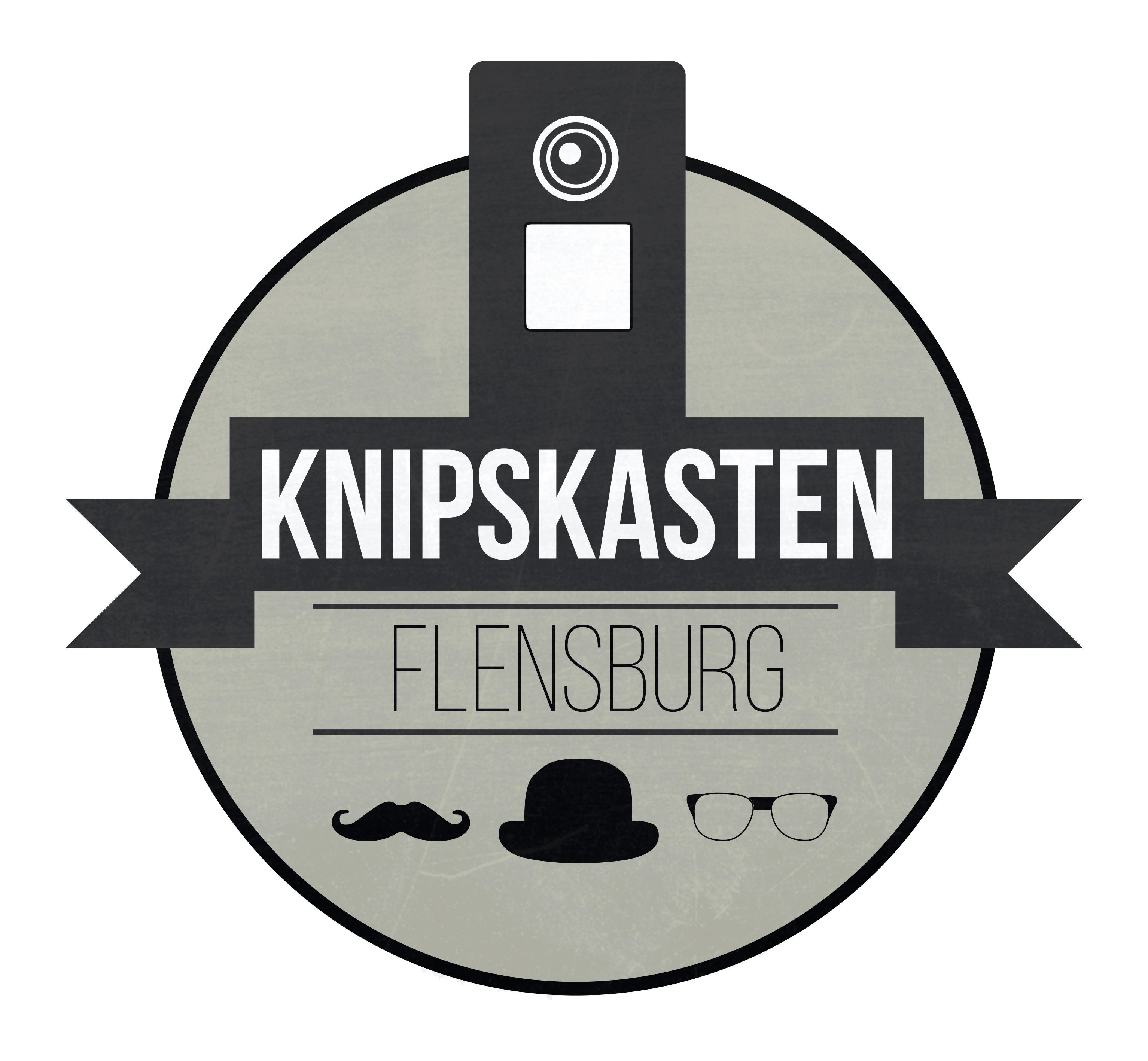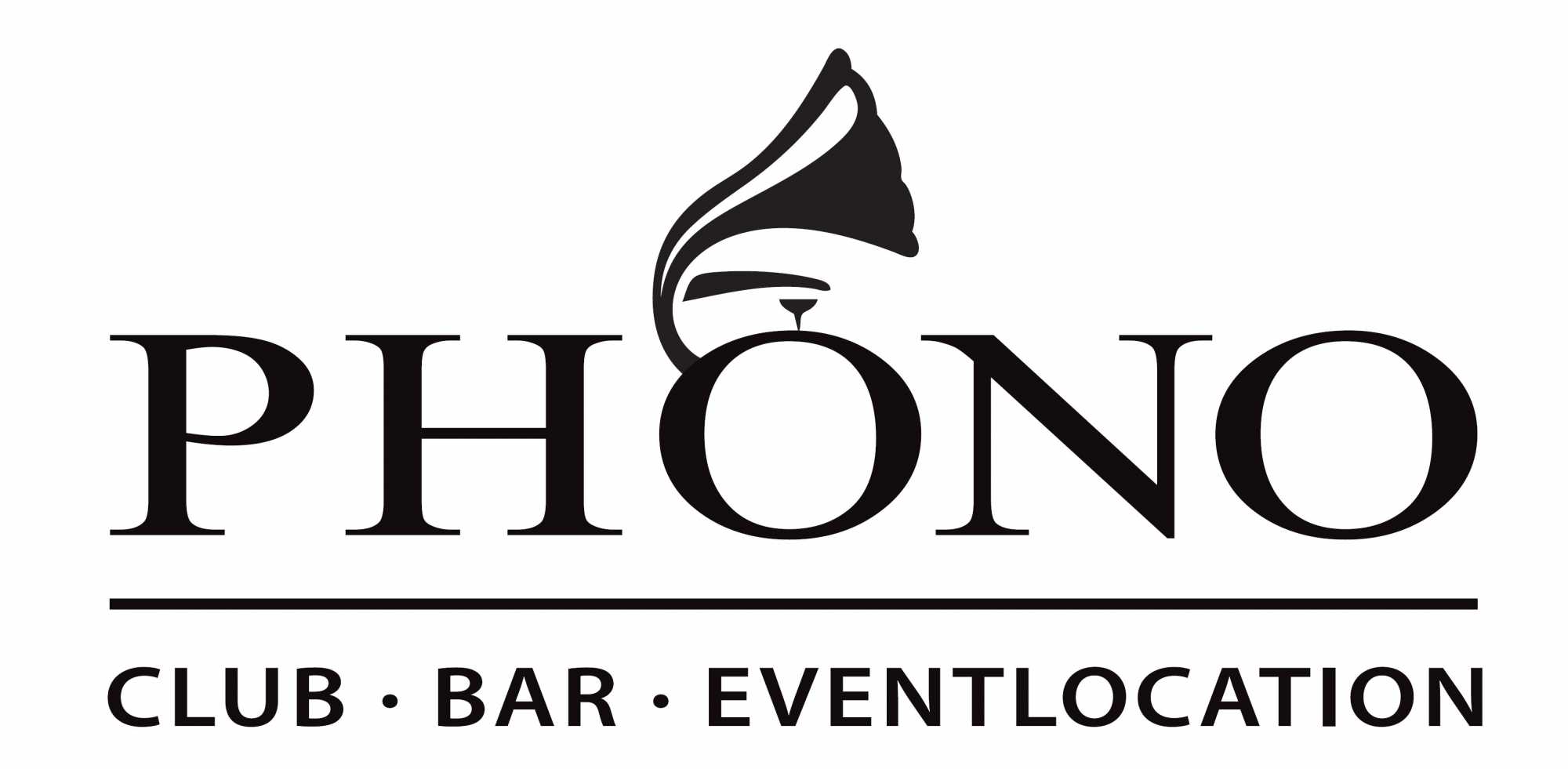Wolfgang Siegfried and Claus Karkotz look anxiously at the North Frisian sky. Another heavy shower has just fallen over the Rot-Weiß Niebüll sports ground. It's clearing up a little now, but it's still over an hour before the Roma from Romania kick off against FC Oberschlesien and the weather here on the west coast could change again quickly before then.
Ten volunteers at each venue
Both men are wearing a dark blue shirt with the Europeada logo and the word Volunteer. "About ten people from the club have to help here every match day," says Sigfried, who heads the football section. And then we've also been allocated two volunteers from the Europeada." It's a lot of work for the club, "but in principle it's a great thing".
One of the two volunteers provided by the organisation for this day is Karkotz, who exudes a great sense of calm in the midst of the hustle and bustle. While it is the first match day for the Niebüll team, Karkotz already supervised the four teams in Tönning yesterday, who are about to compete against each other. He was therefore able to tell the referees that everything was fair and friendly on the first match day in Tönning.
"Where help is needed, I'm there"
Karkotz also takes his relaxed attitude from the fact that he is one of the most experienced volunteers at this tournament. Helping is his hobby and he has already provided his unpaid support to many sports festivals and other events. EUROPEADA project manager Ruwen Möller met him in Hamburg at the last European Handball Championship and asked him if he would like to take part in the EUROPEADA.
"When I arrive at the venue, I always start by finding out where help is needed," says Karkotz, who lives in Hamburg and is staying with friends during the EUROPEADA. "Today, for example, we greeted the teams and referees and showed them the dressing rooms. I pumped up balls – wherever help is needed, I'm there."
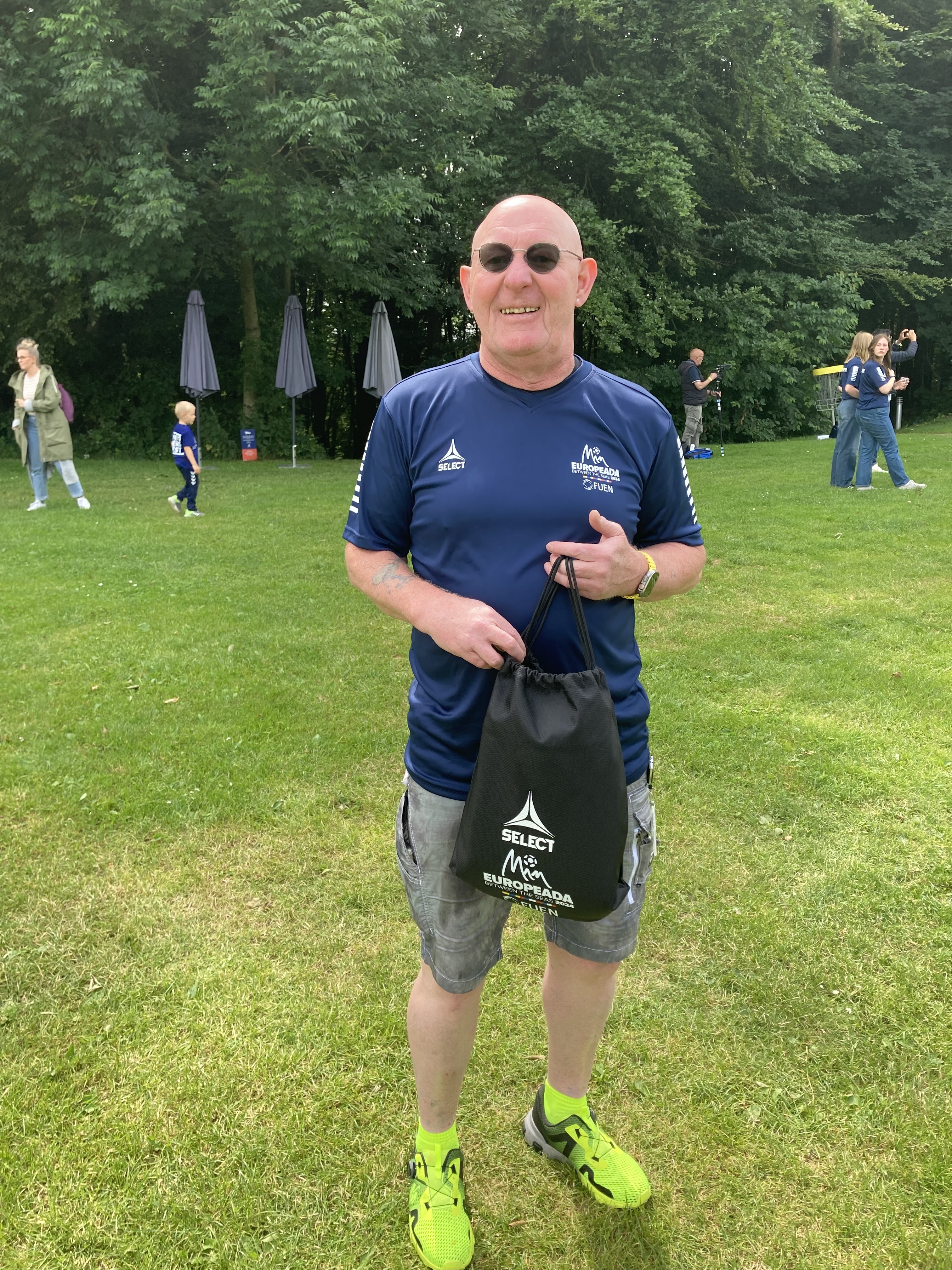
Volunteering with passion
This is genuine voluntary work and requires a great deal of passion for the cause. "I used to be an active cyclist and the most important thing for me is to give something back to the sport that I have received myself over the years," says Karkotz. He also gets to know new cultures and people through his work. "The people are all great, the Frisians anyway. I've never heard a bad word here. So, the job makes me happy." Now the teams enter the pitch to warm up and Karkotz quickly takes a few photos for the EUROPEADA social media channels.
Puzzle work at the head office
"It's great to have such experienced people and passionate volunteers like Claus at your side," says Tim Frogier, who is responsible for the volunteers together with Möller, at the operations centre in Flensborghus. As not all clubs are able to provide the ten volunteers required for each match day and also needed their own staff for the opening and the cultural day, Europeada recruited 50 additional volunteers via a registration platform. Over the course of time, another twenty or so were recruited through personal approaches, which, together with the volunteers from the clubs, resulted in a total of around 200 volunteers. "Without them, none of this would work," says Frogier. "They are very flexible and alert and have an interest in ensuring that everything runs smoothly."
In addition to welcoming and briefing the teams and referees, there are also very practical tasks such as hanging up banners. But special tasks such as operating the streaming cameras and making stadium announcements also have to be carried out. All volunteers were able to indicate when they have time, where they can come and which languages they speak. In order to deploy them precisely on the basis of this information, a jigsaw puzzle had to be put together and constantly readjusted. "We are micromanaging here," says Frogier.
The language hunter
When filling in the language skills on the registration form, there probably wasn't enough space for Damiano Di Muro. For the Slavic studies student from Munich, it is precisely the linguistic diversity at this tournament that drew him to the far north for a week. This is what made him one of the first EUROPEADA fans.
"In 2008, I happened to see a report of the first EUROPEADA on television," says Di Muro. "As I've always been interested in minority languages and ethnic minorities, I started following the tournament on the internet." He did the same for the subsequent tournaments until he finally took part as a volunteer. "I'm particularly interested in the cultural aspect," he says. "The fact that you get to meet so many people from all corners of Europe and hear all the languages live that you only know from books." Di Muro even speaks some of these languages himself – such as Upper Sorbian, Danish and North Frisian. He can at least read Romansh and Ladin. Next, the language hunter would like to learn an indigenous language such as Navajo or Livonian. It goes without saying that he would also like to do something with languages after his Master's degree, preferably even in connection with minorities.
"Forget the European Football Championship, the EUROPEADA is the more interesting tournament"
During the Europeada, Di Muro is mainly employed at the Flensborghus headquarters. "For example, we call the pitches before the matches to make sure everything is OK. Then we follow the matches and enter the results on the website. We also publish news, photos and informative texts there."
Di Muro will now translate this text from German to English. But first he wants to get a message out: "Forget the European Football Championship, the EUROPEADA is the more interesting tournament."
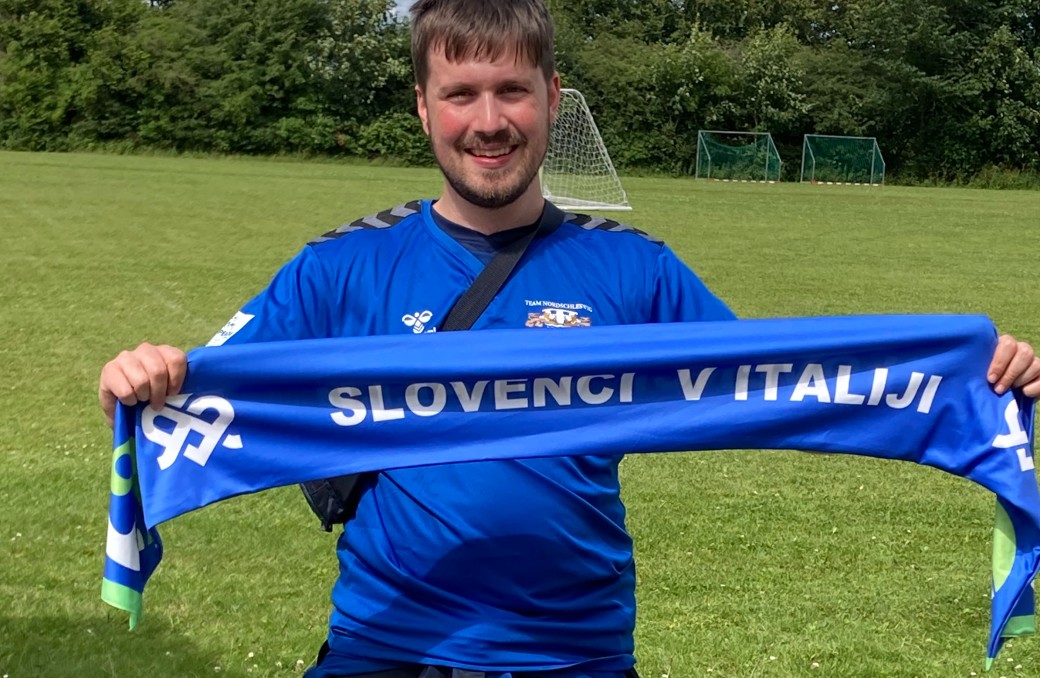
.png)
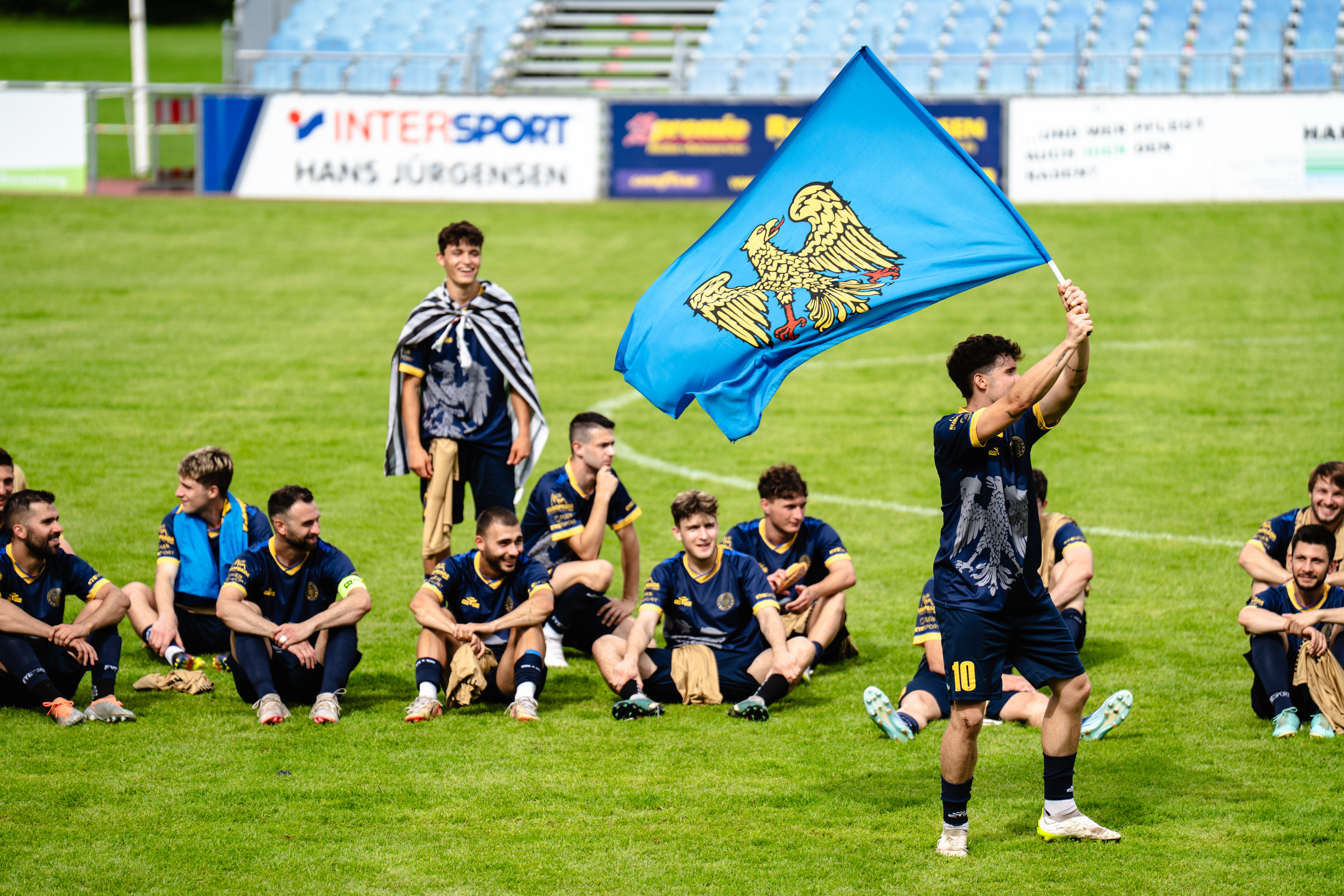
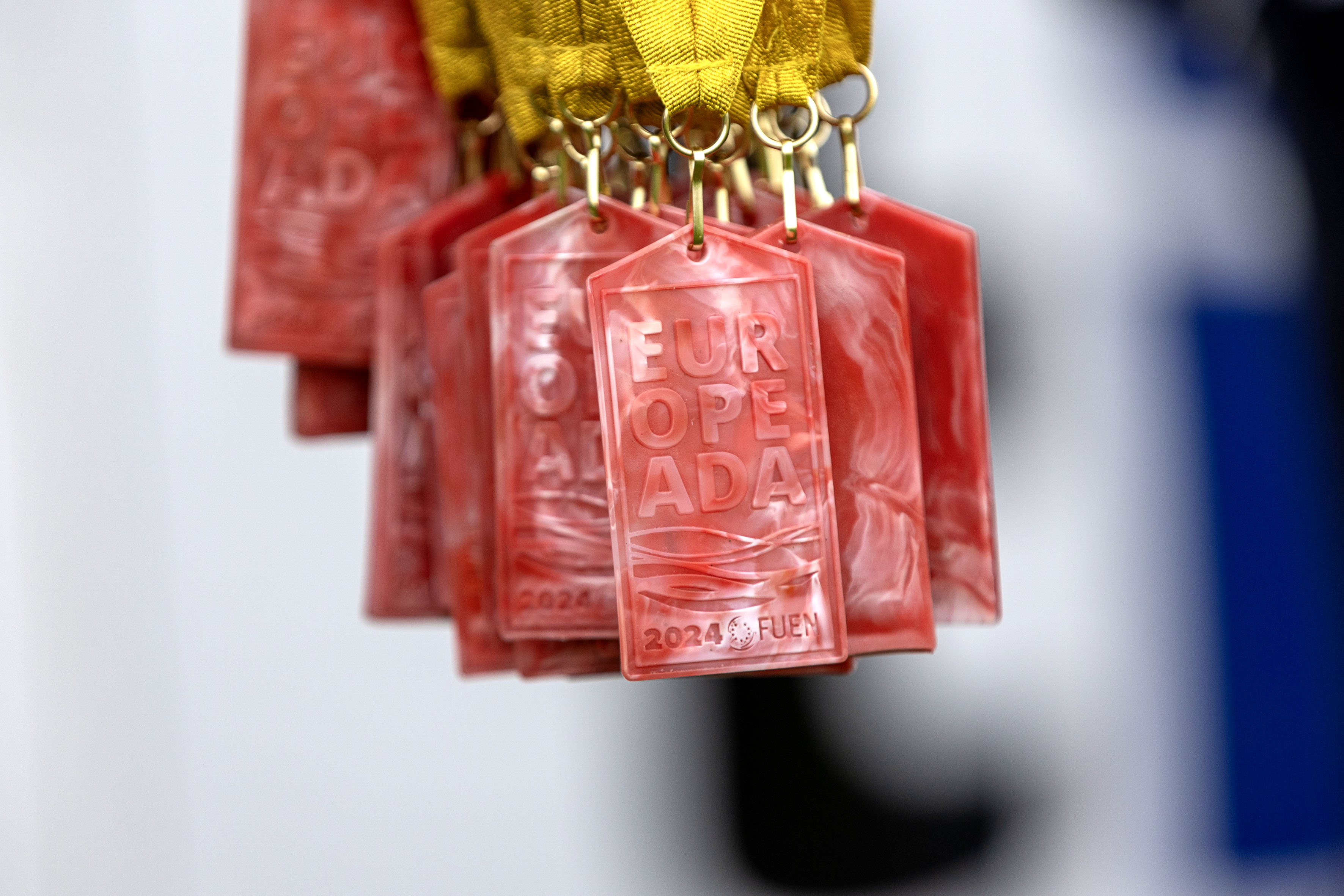
.jpg)

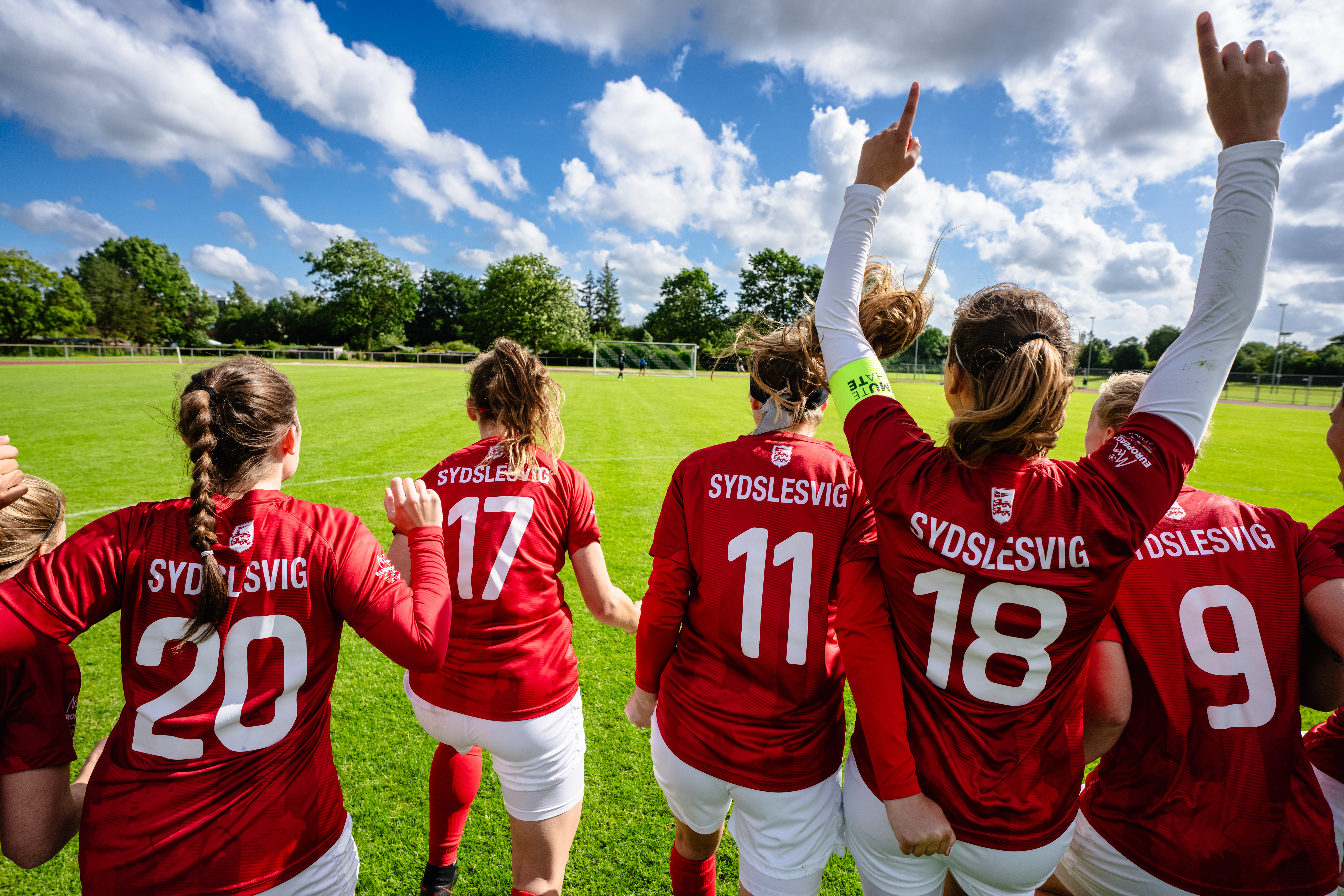

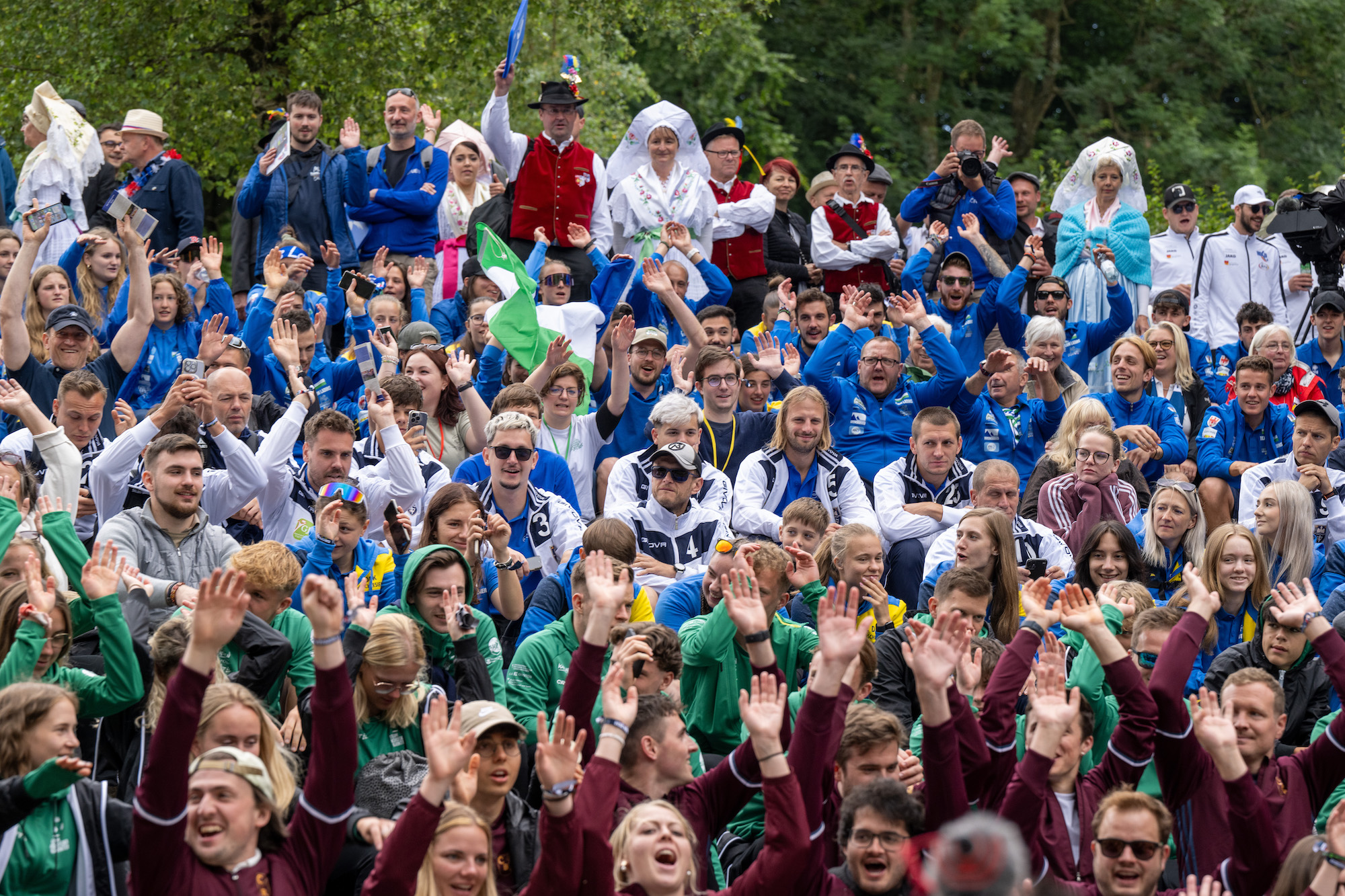
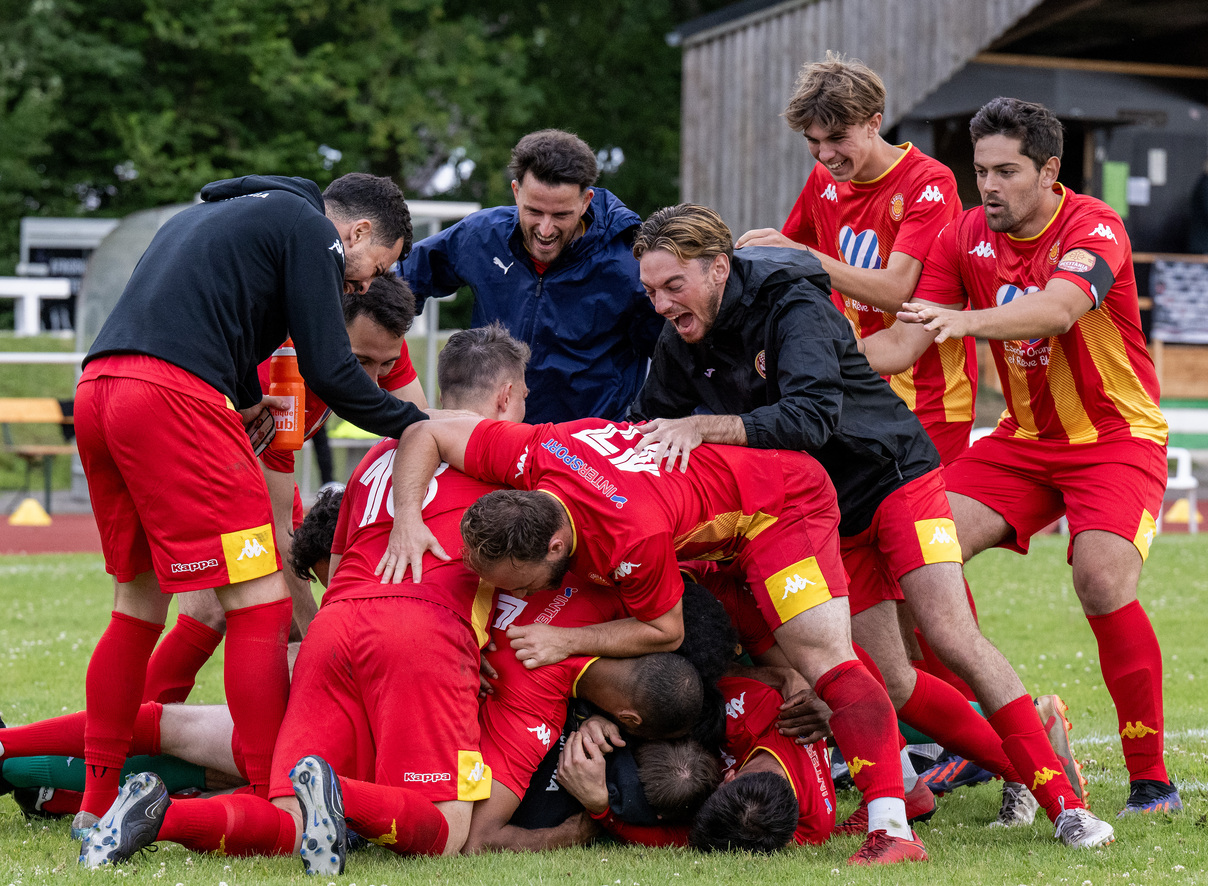
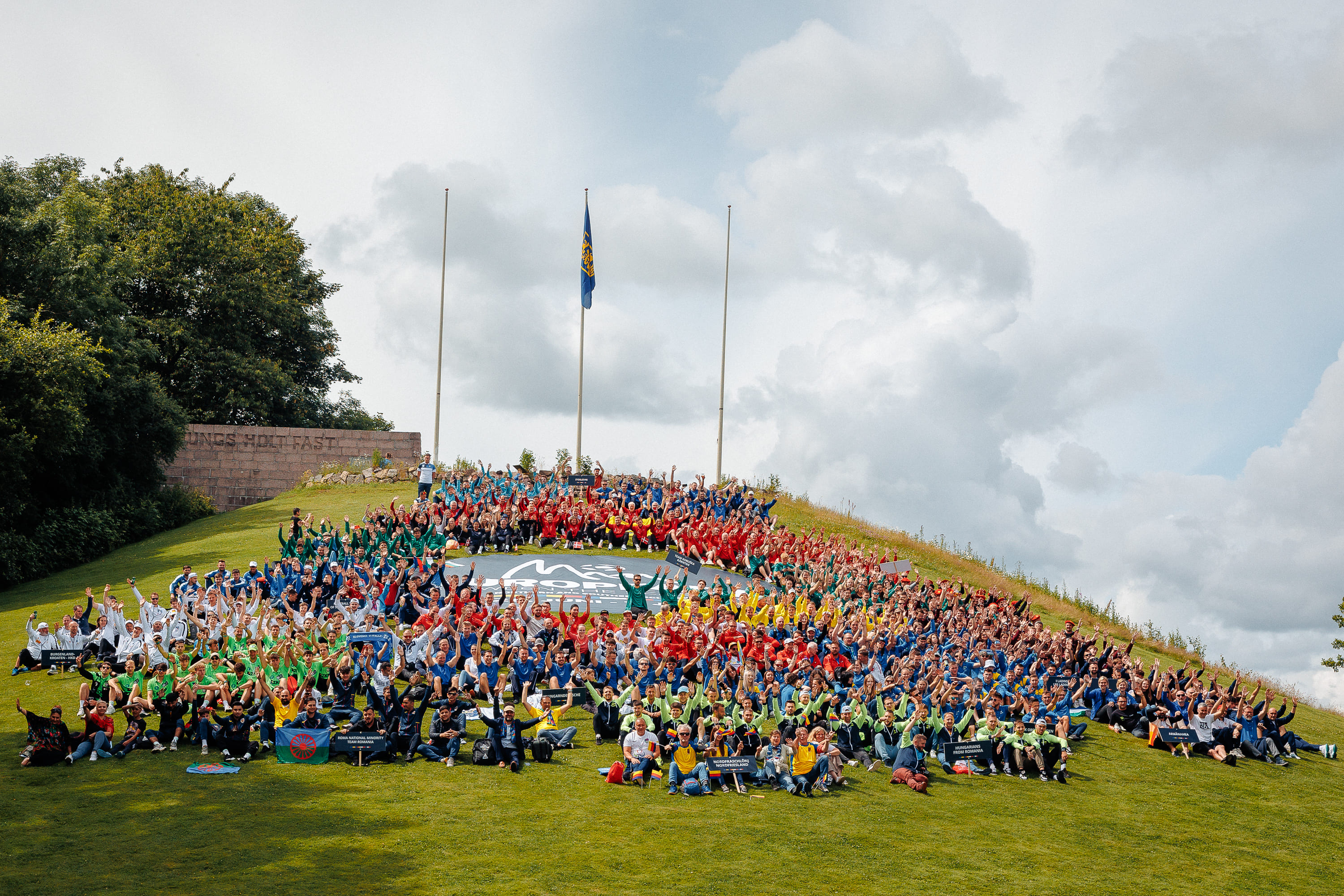
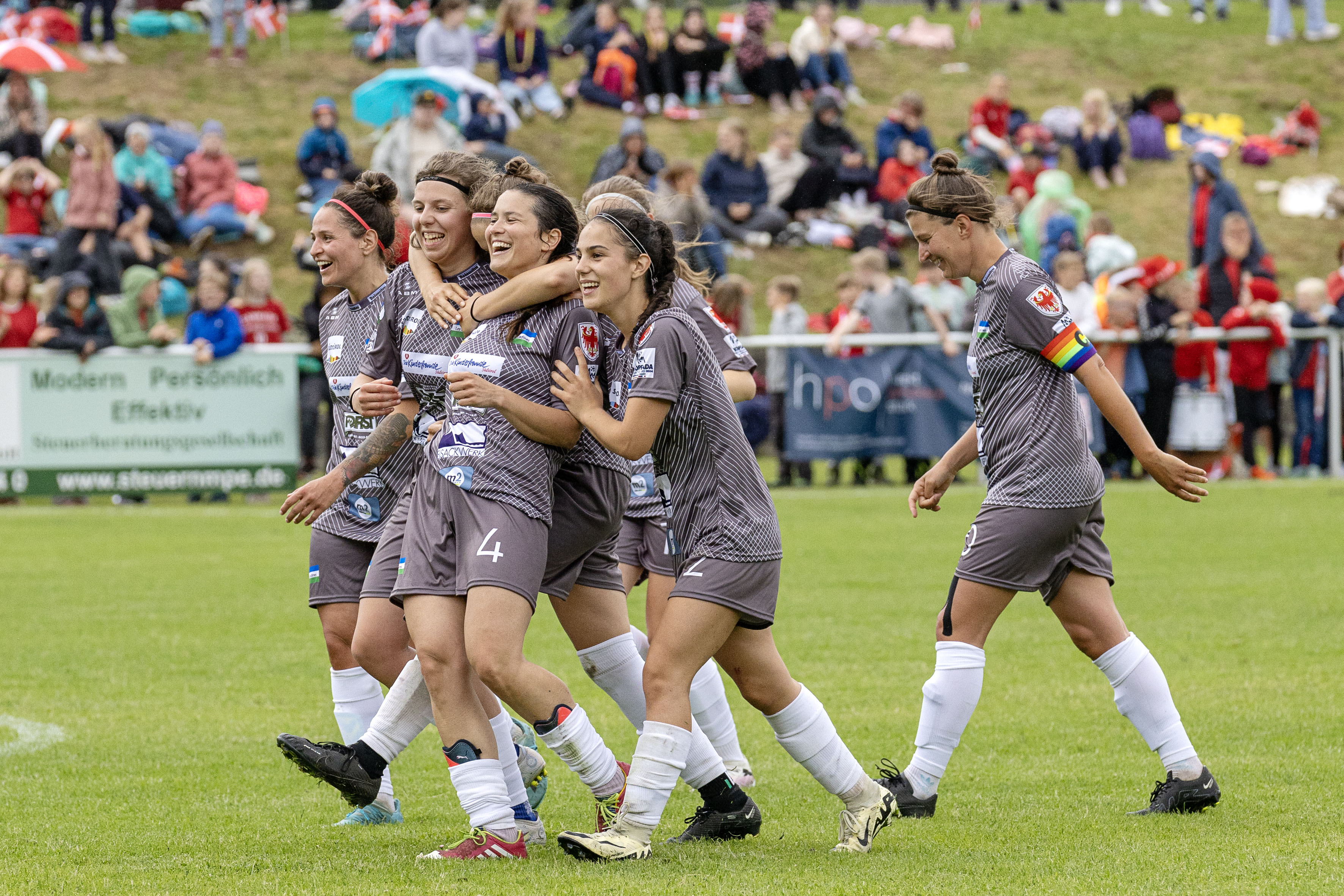
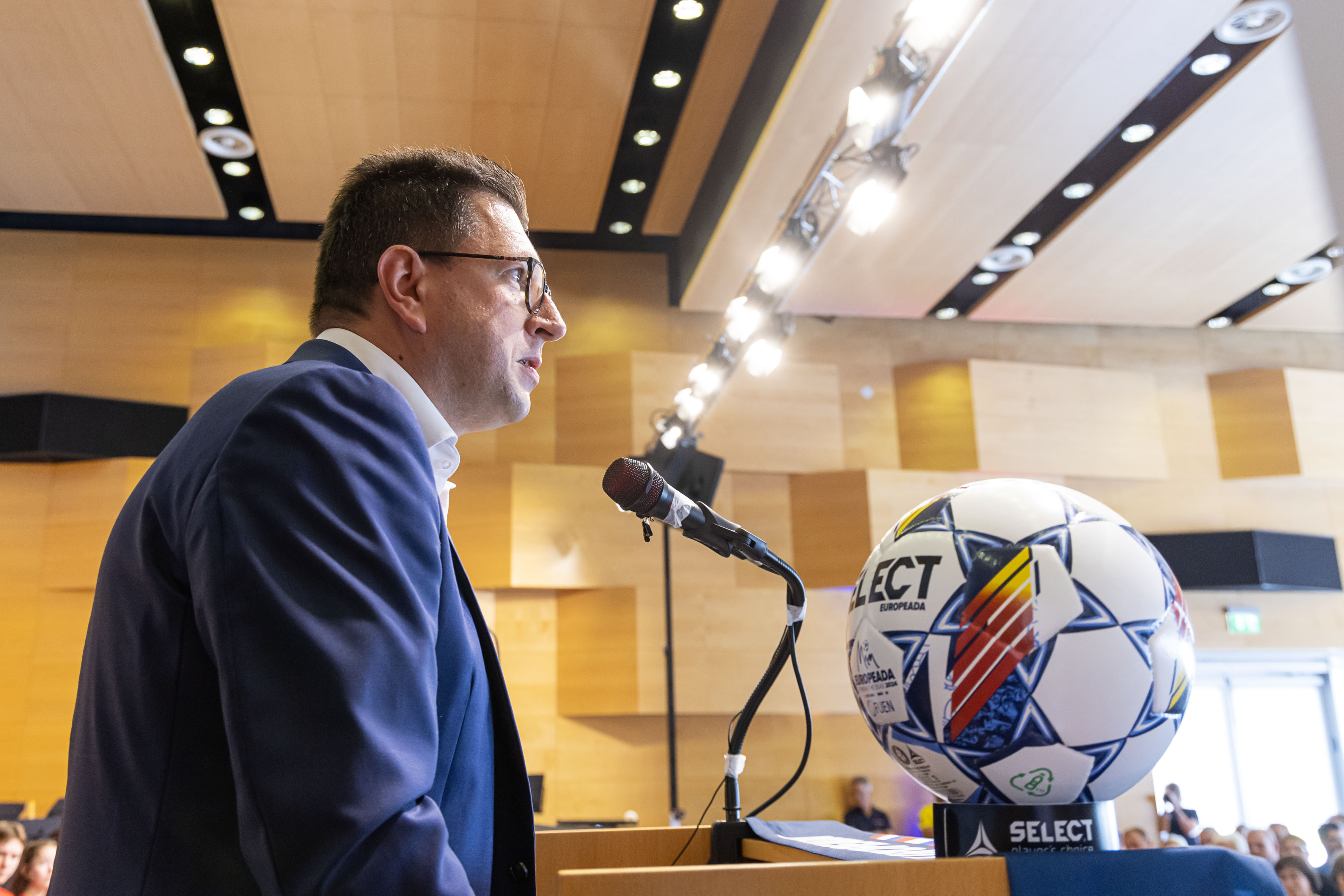
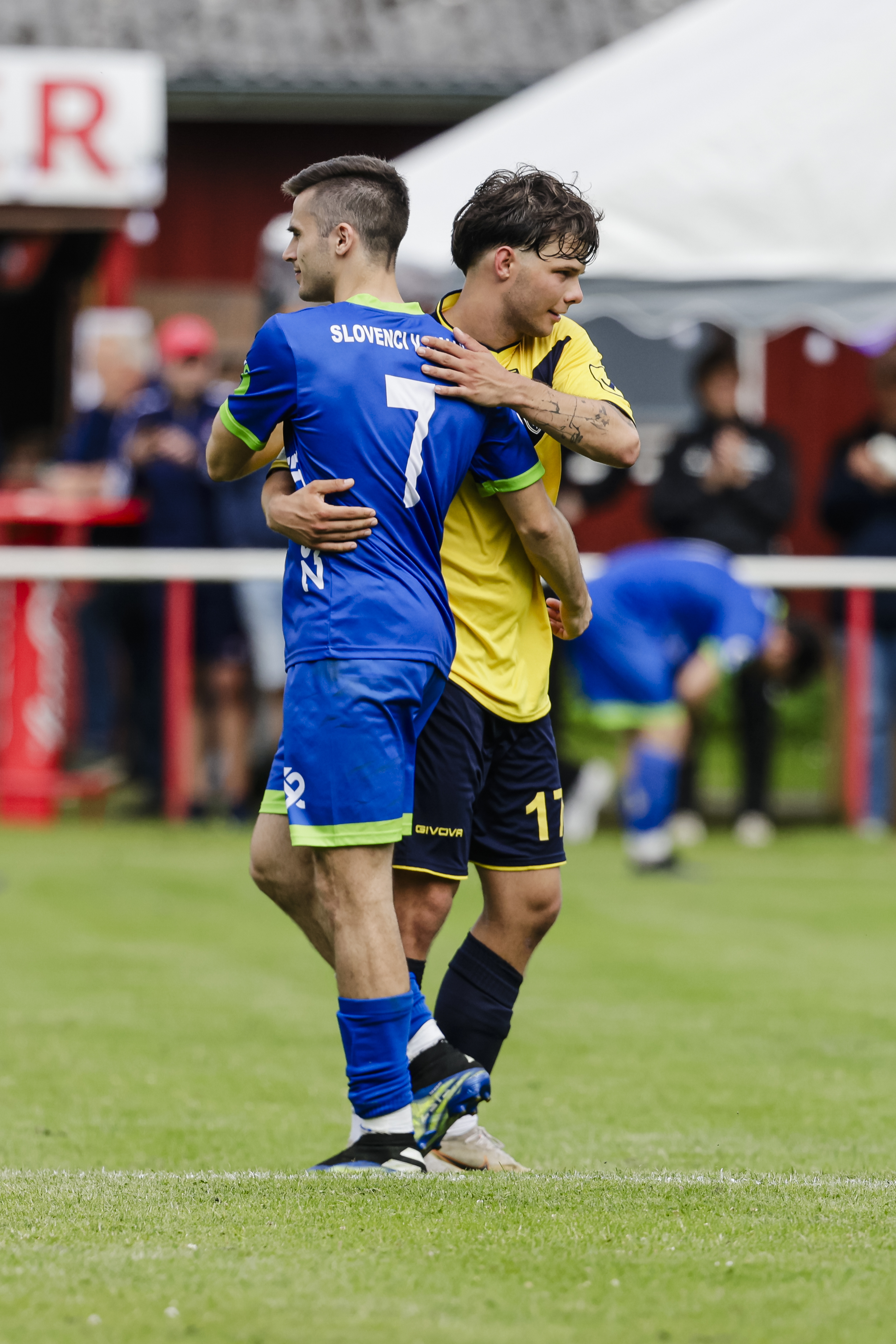
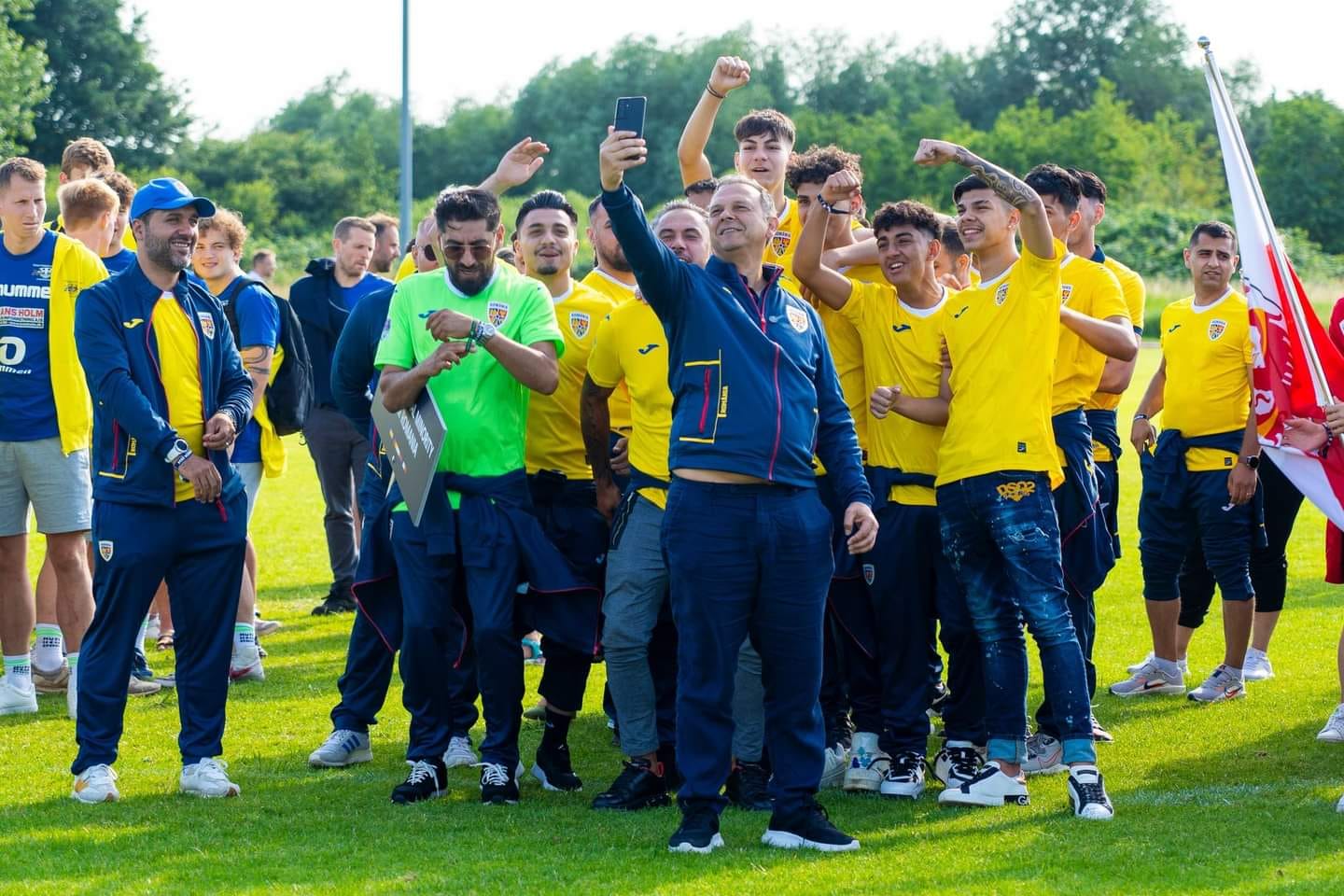
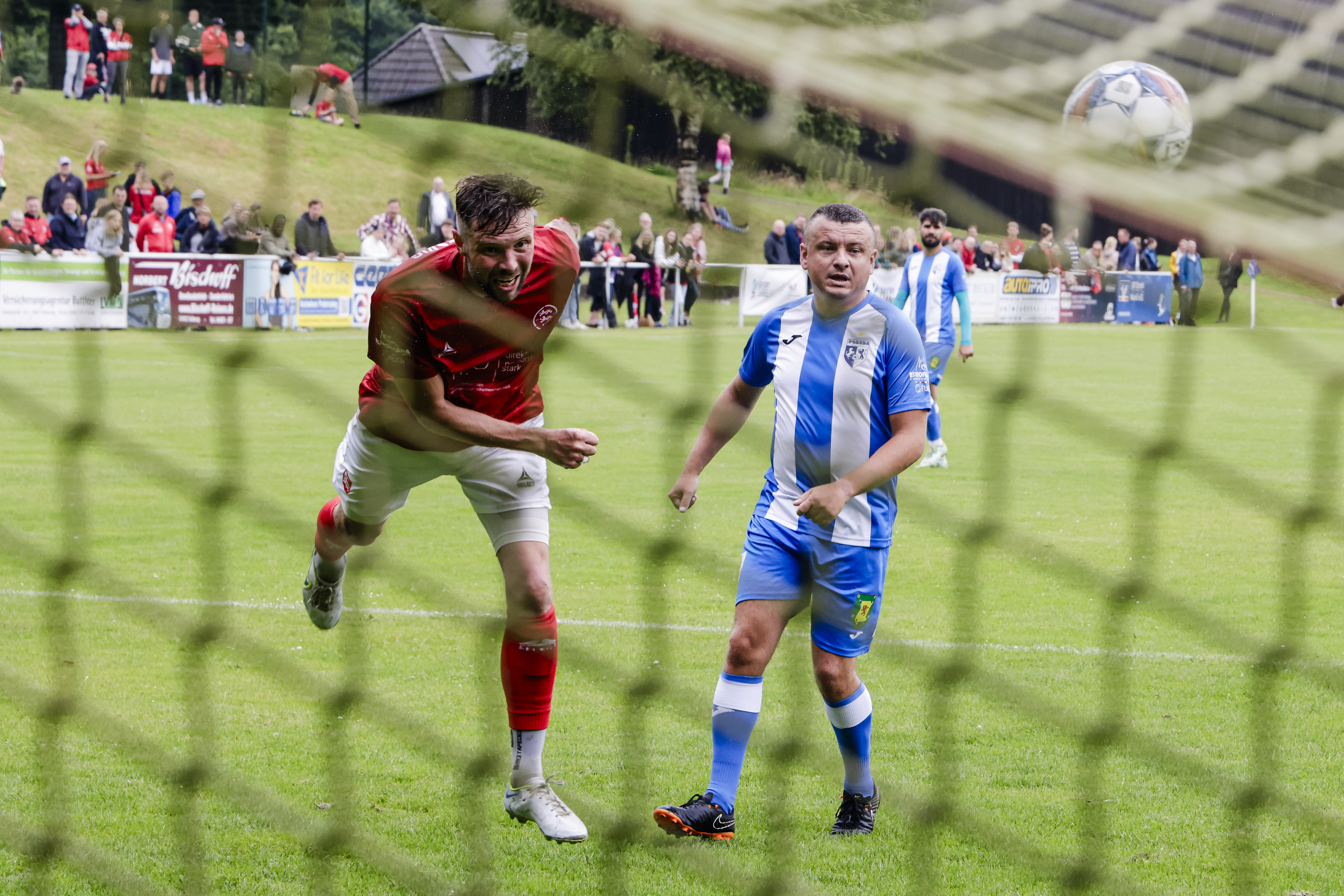
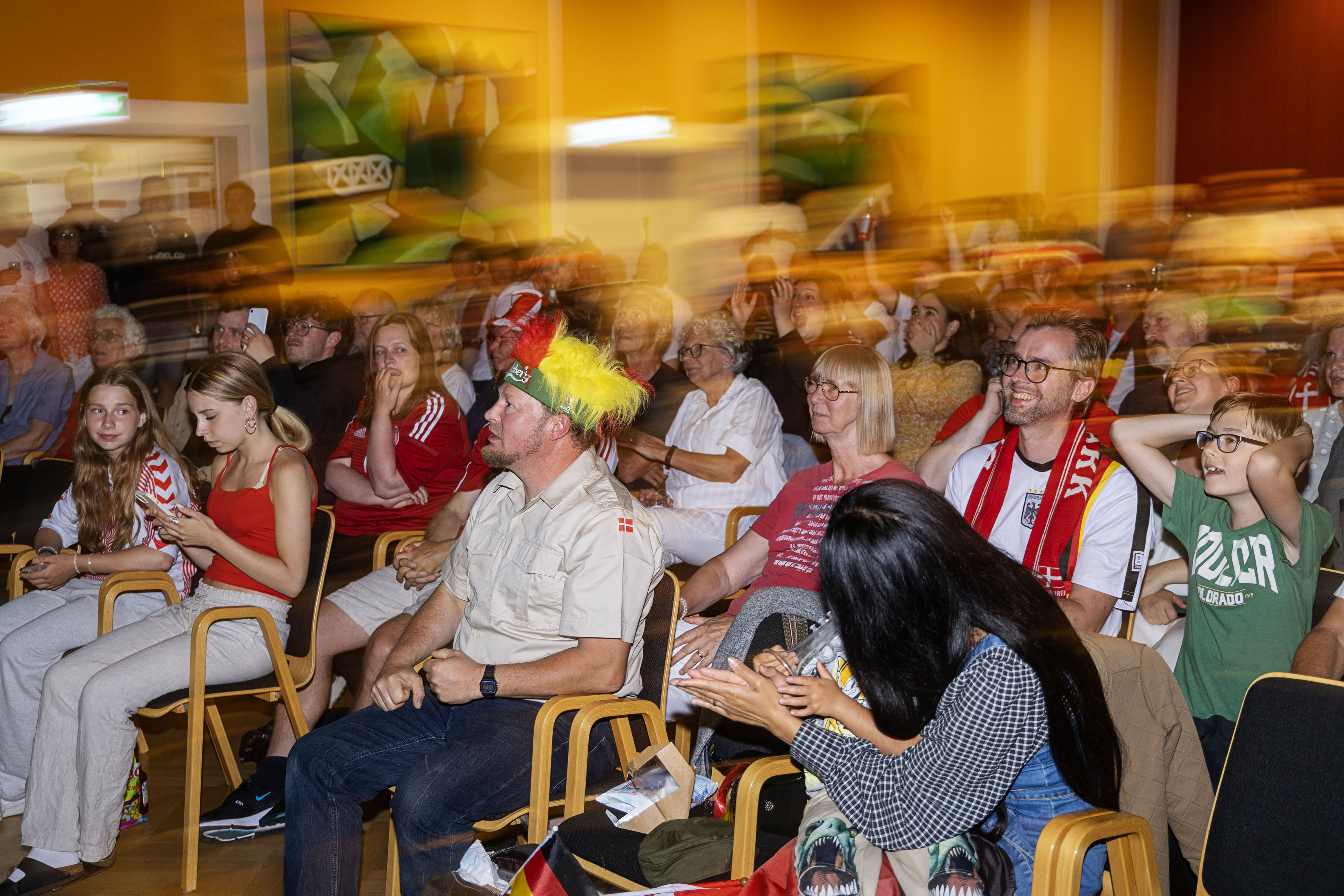
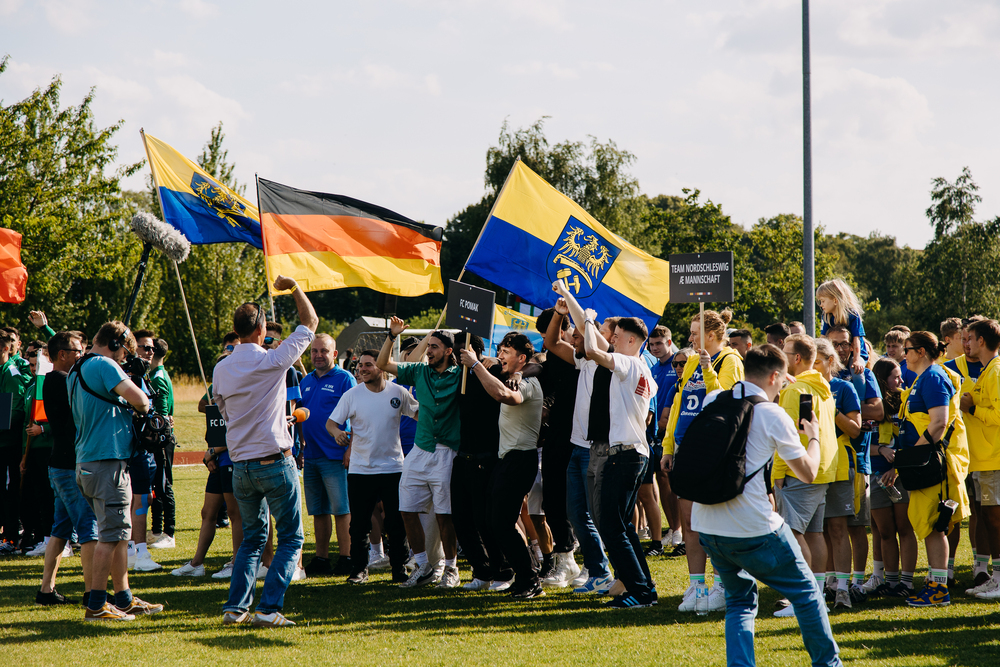
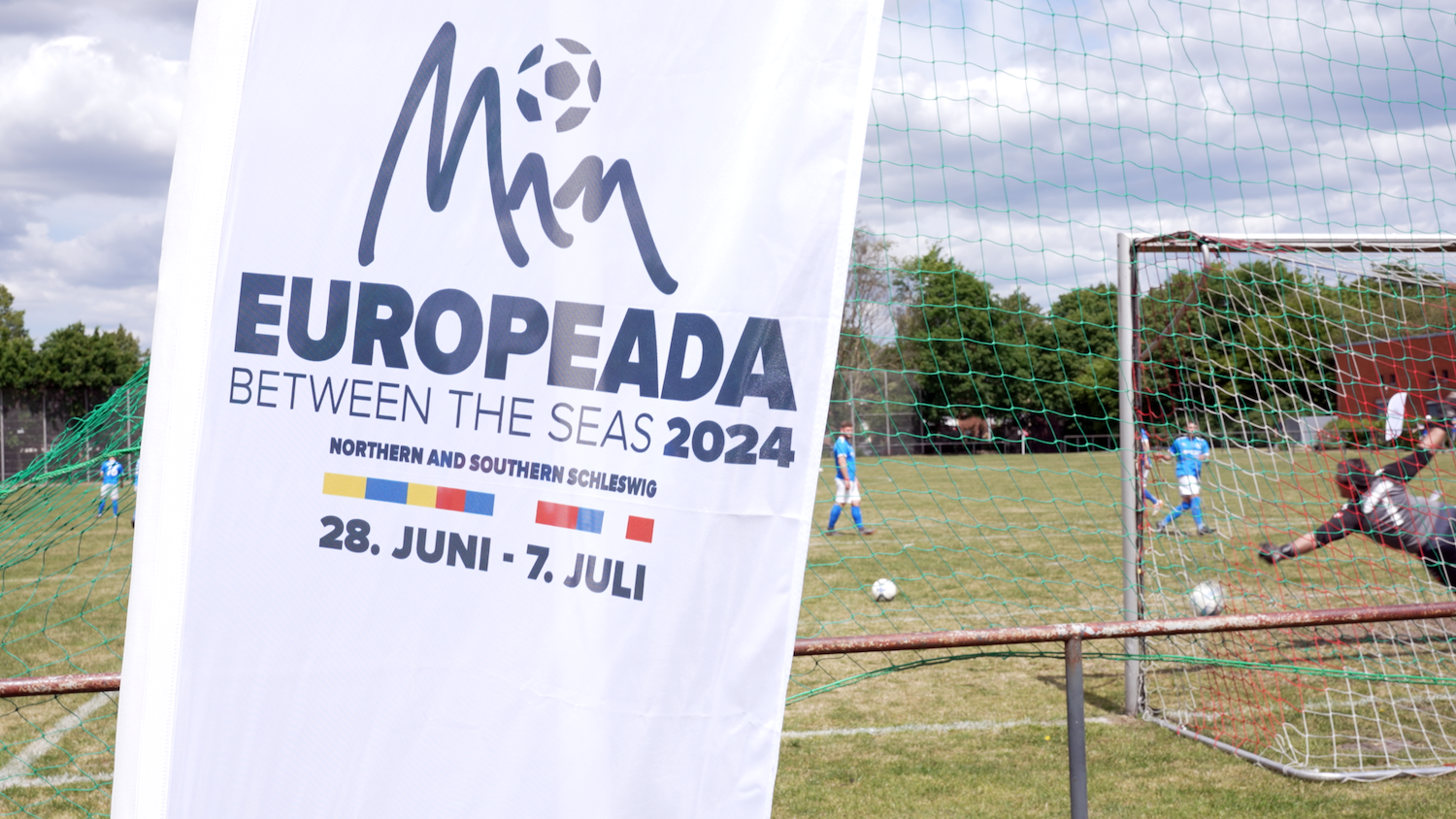
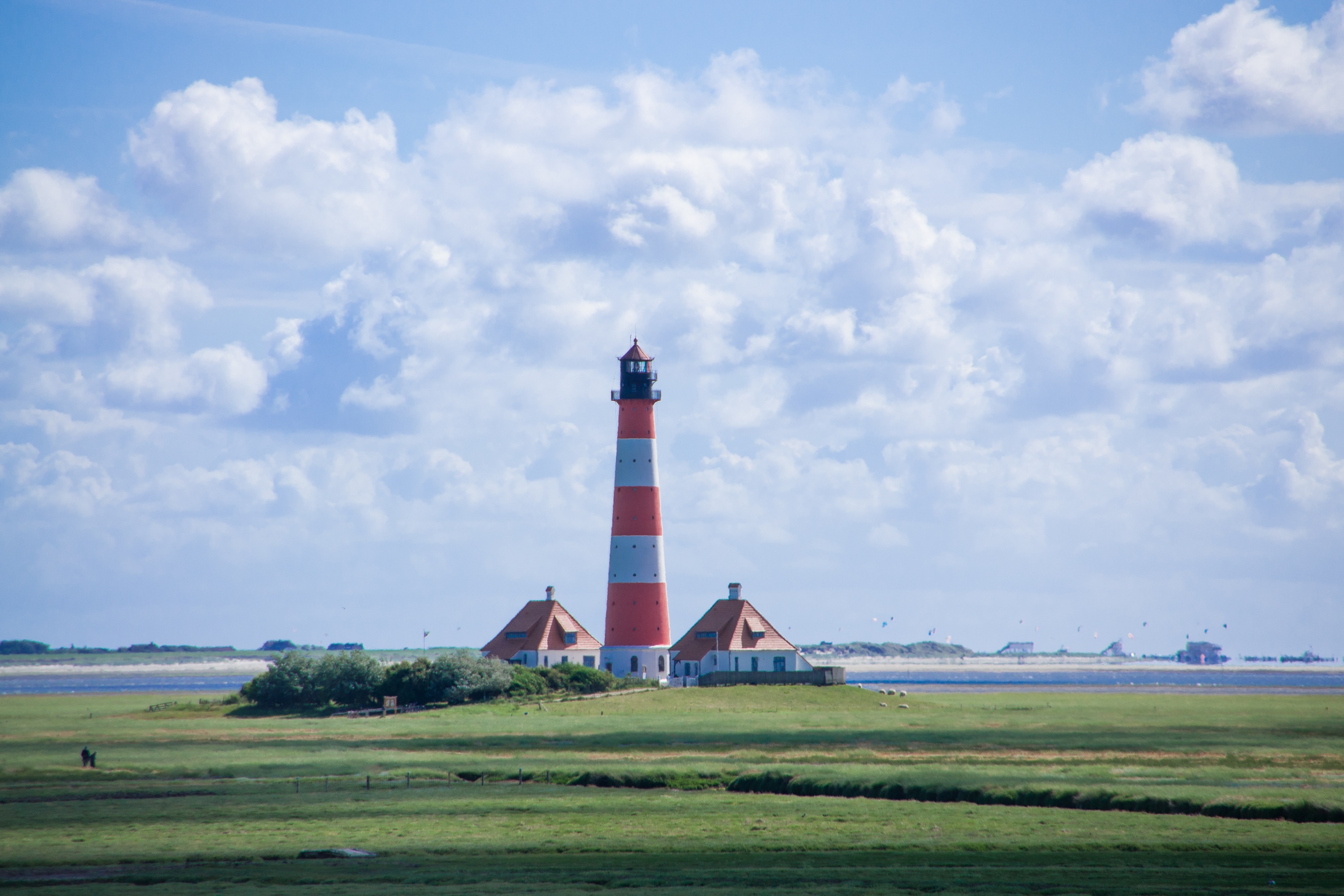
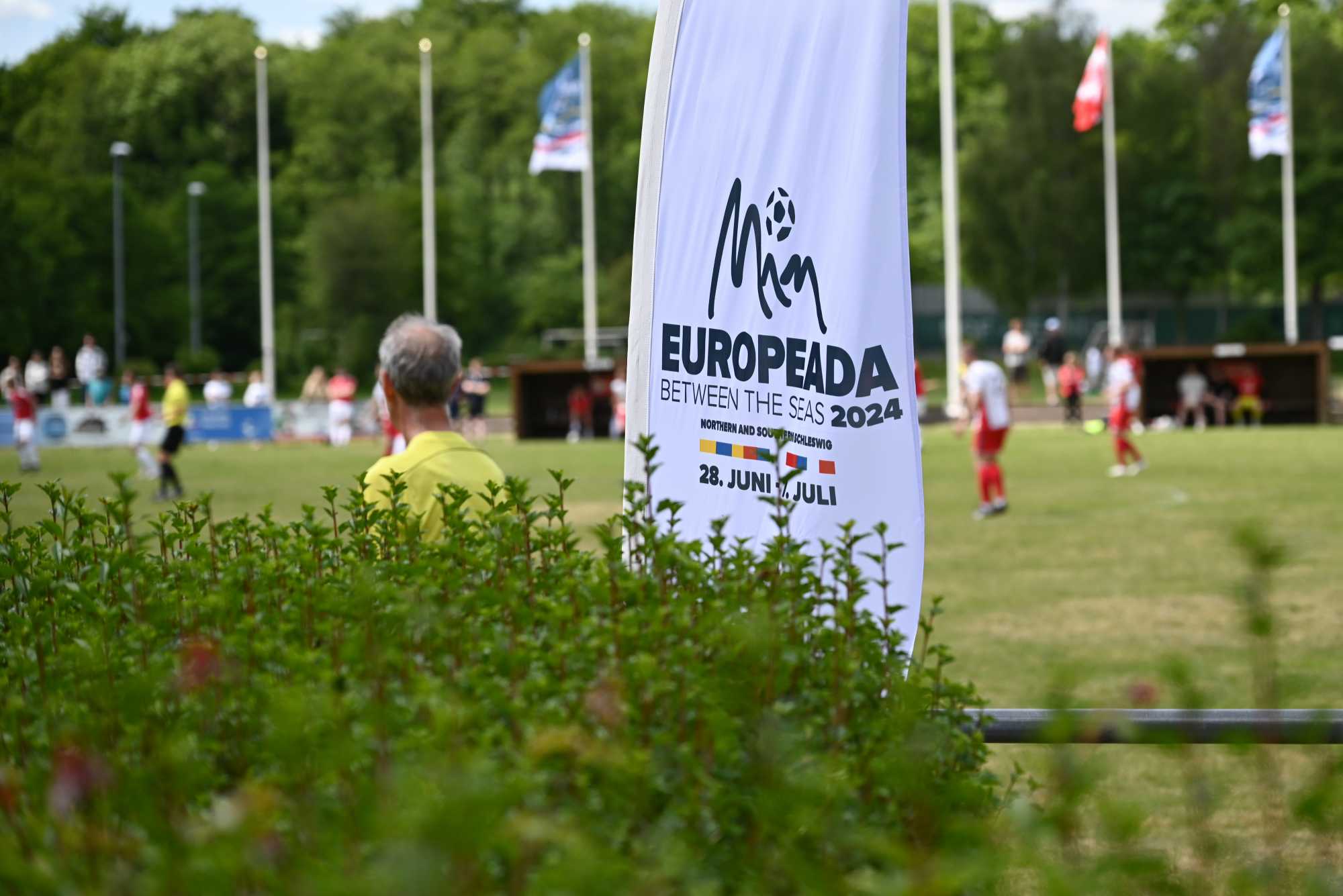
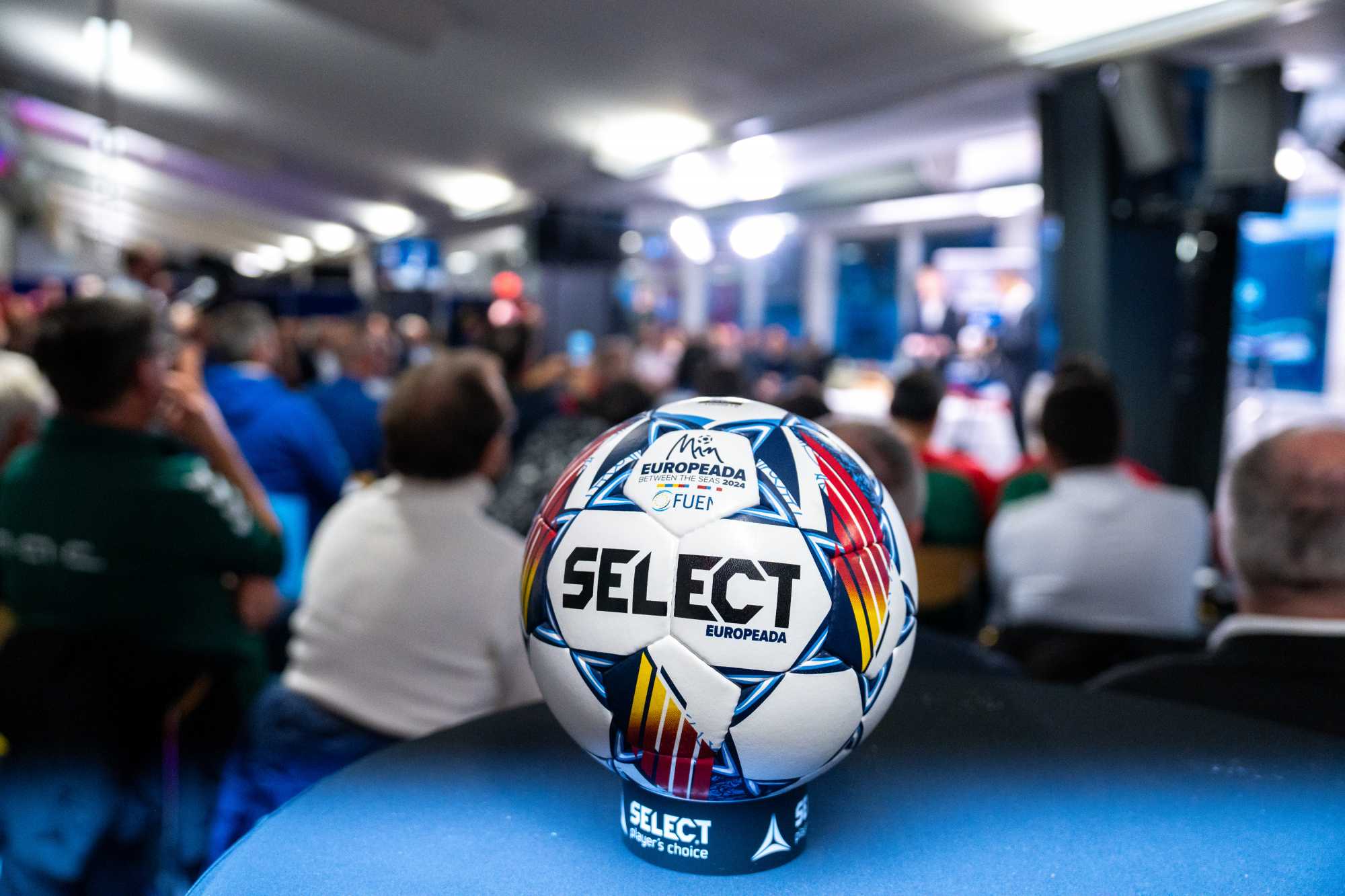
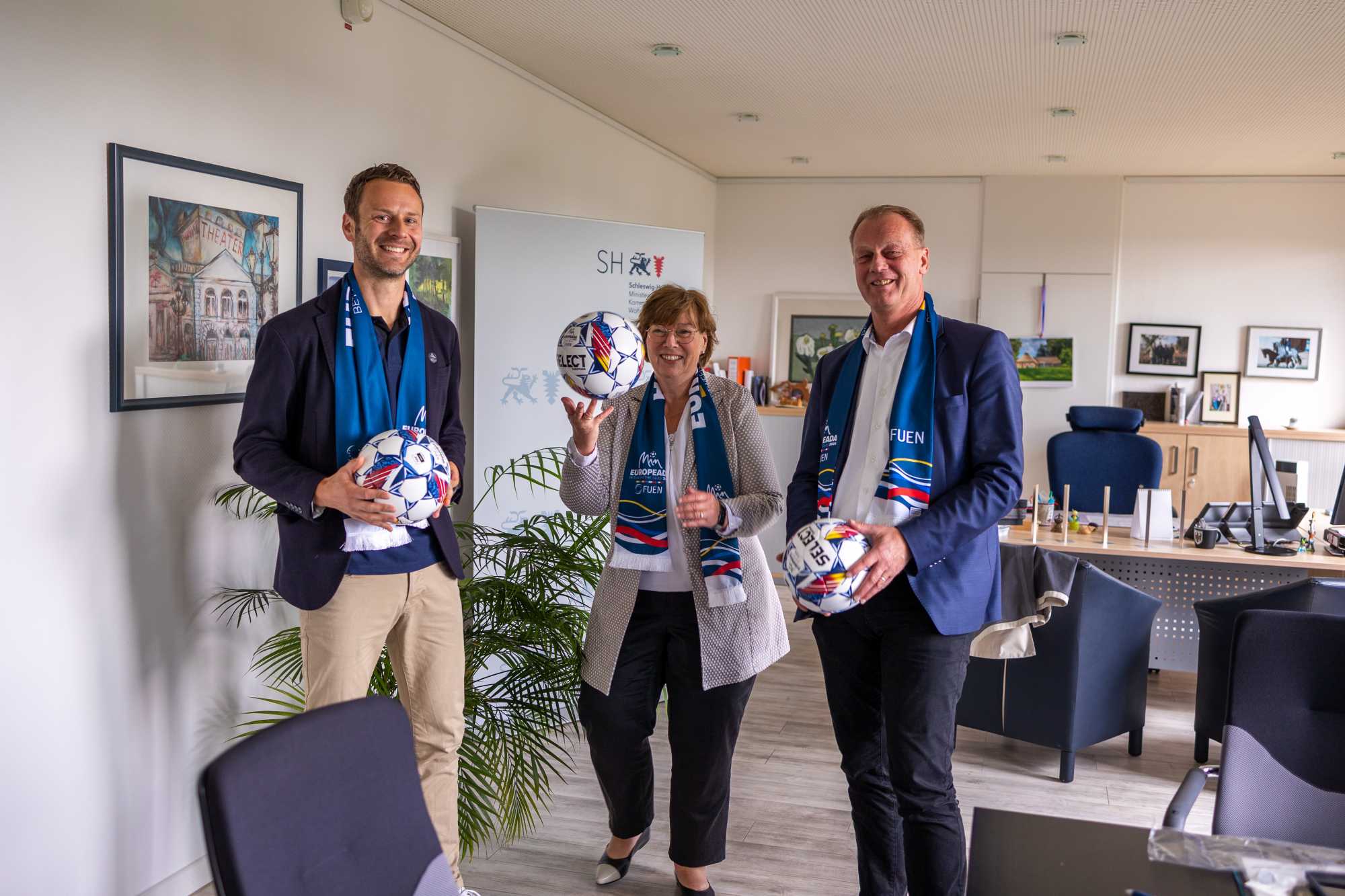
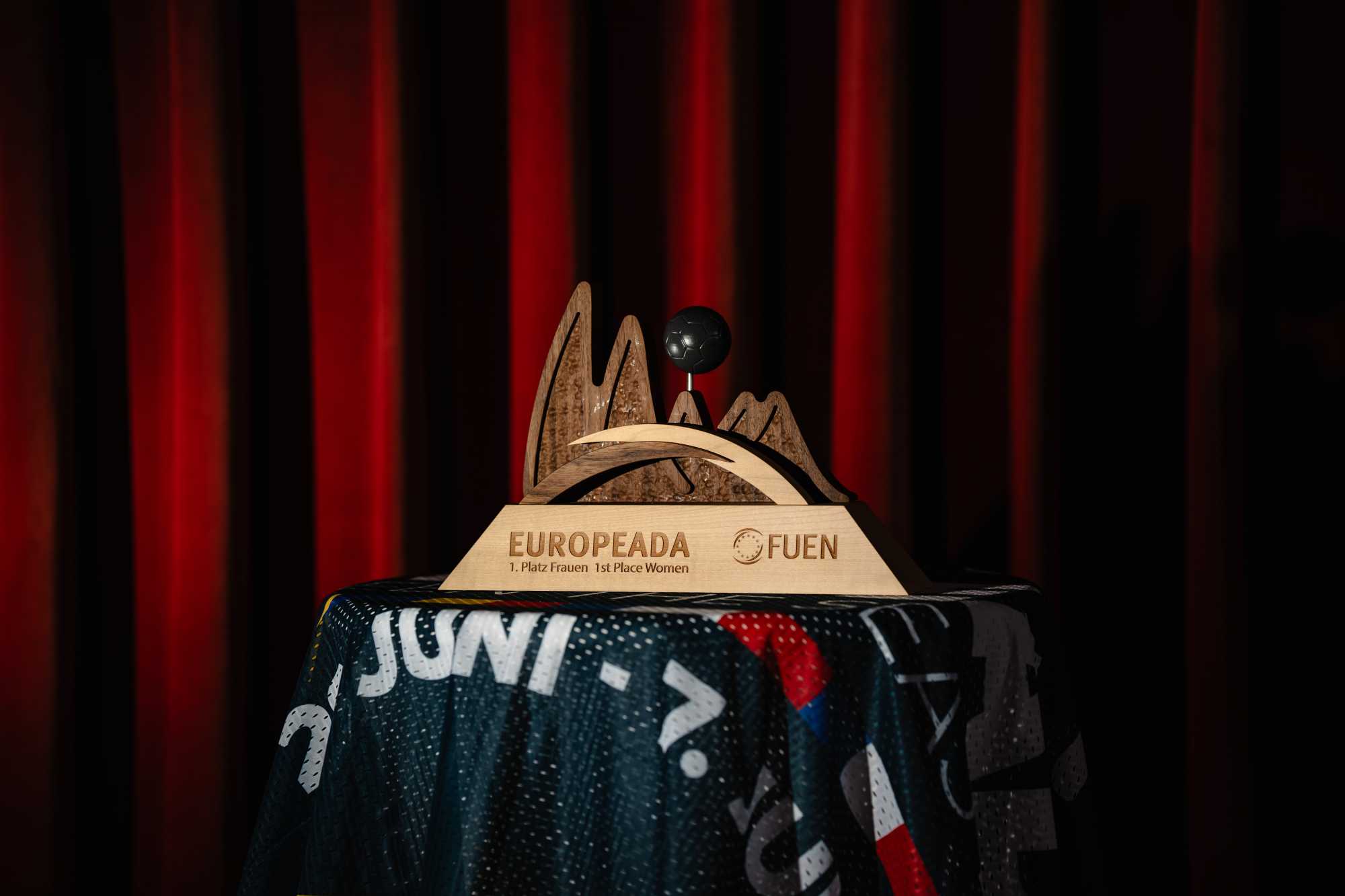

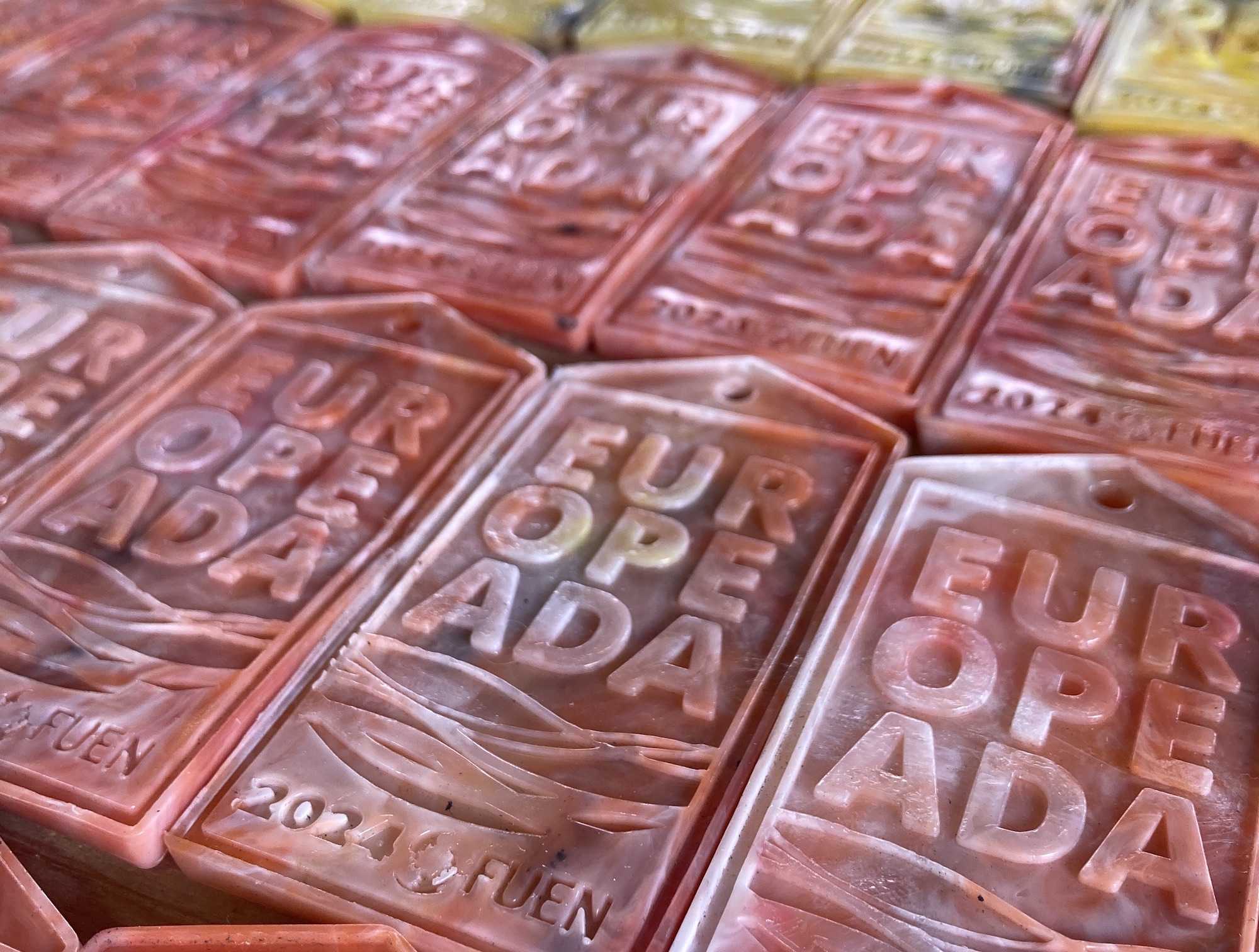
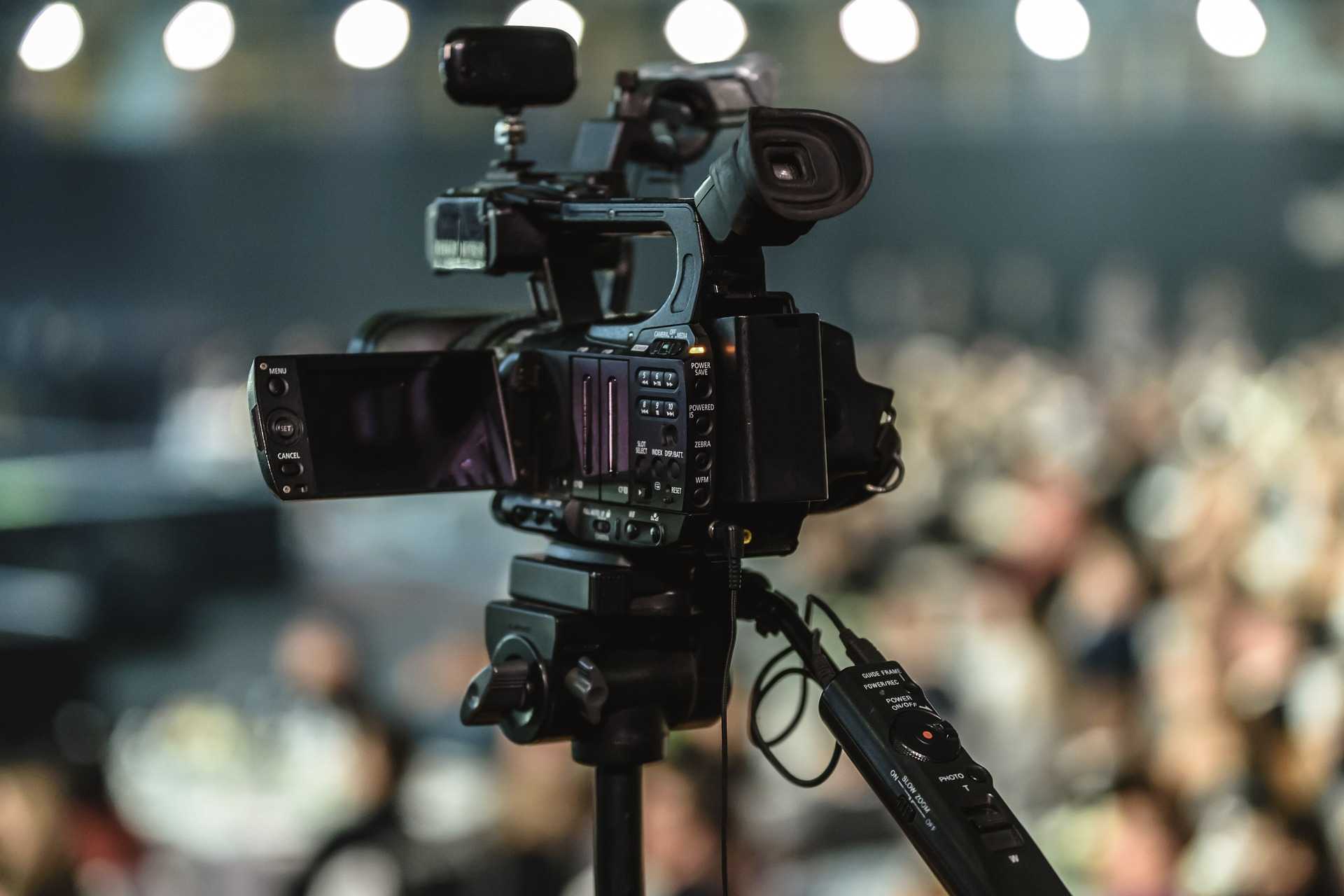
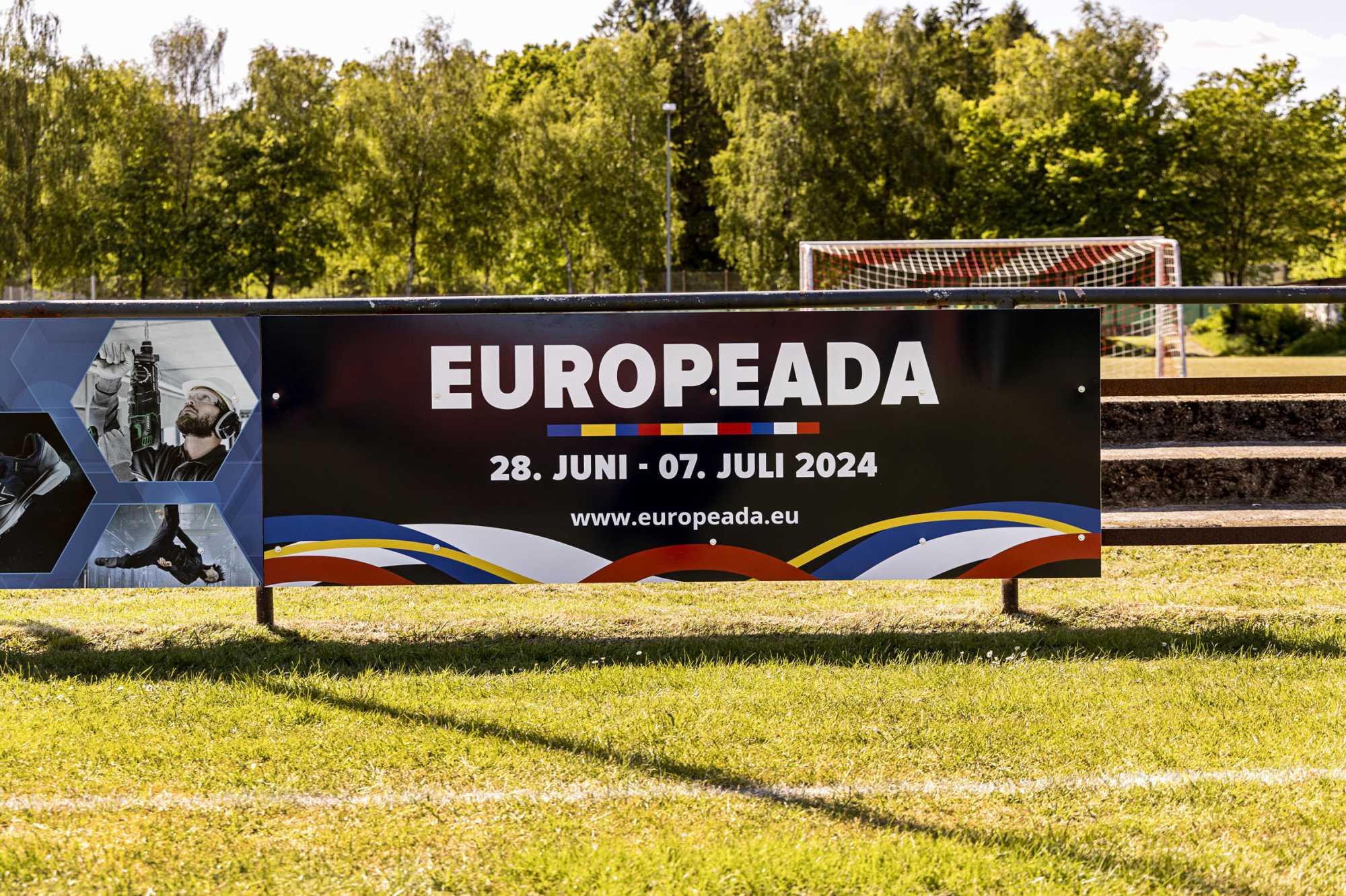
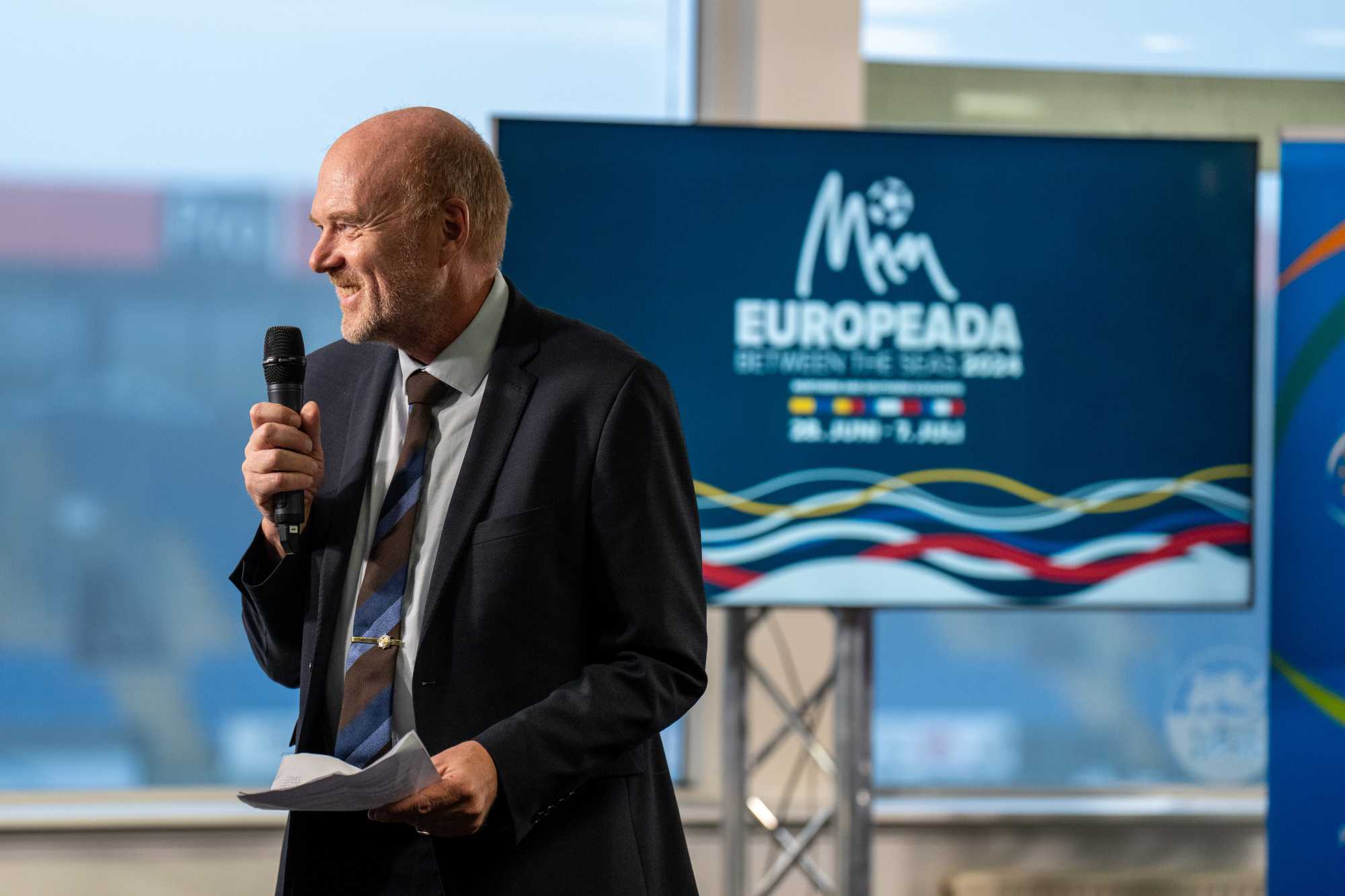
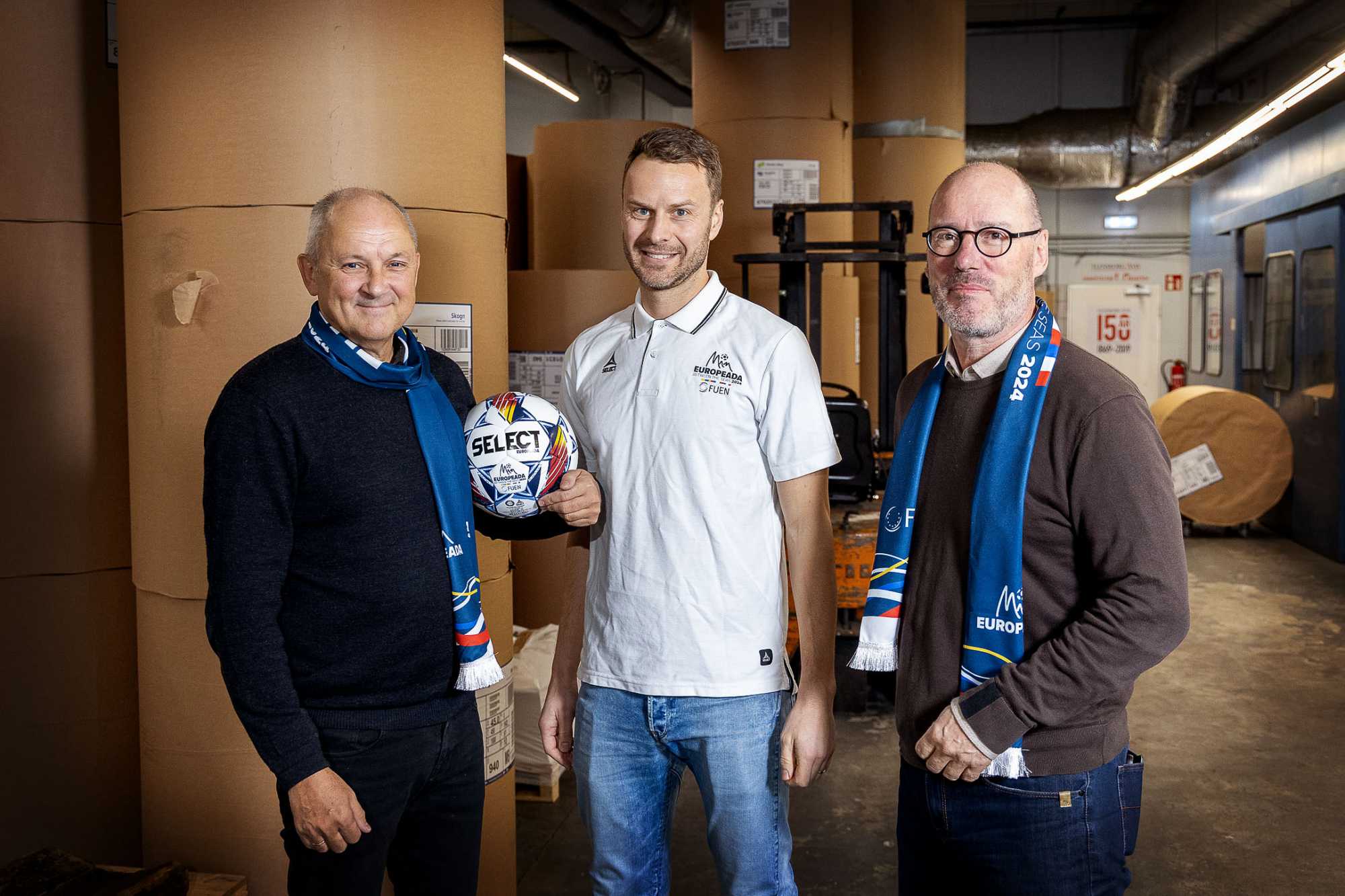
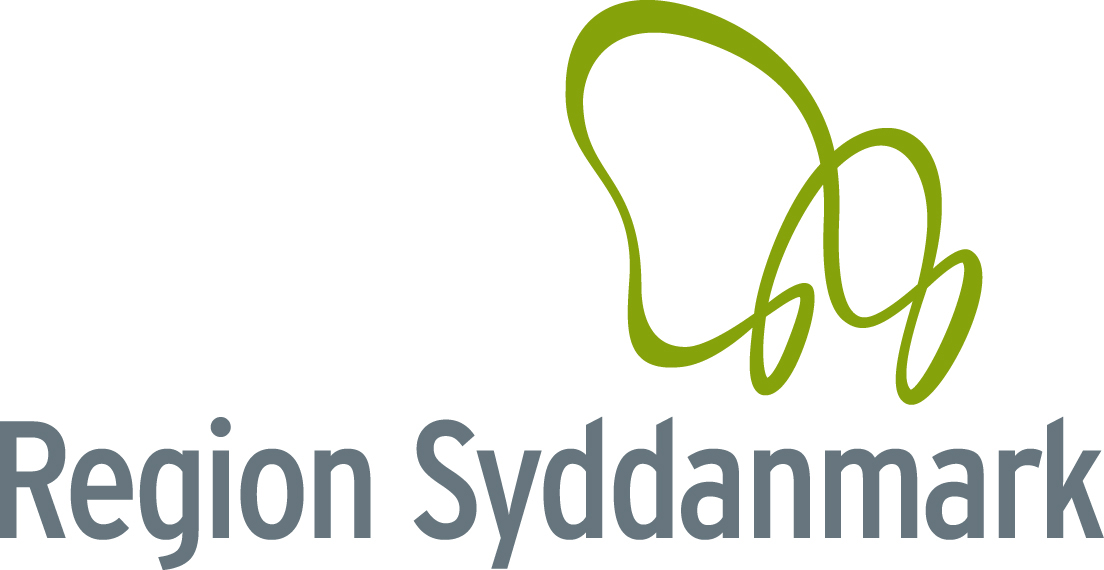
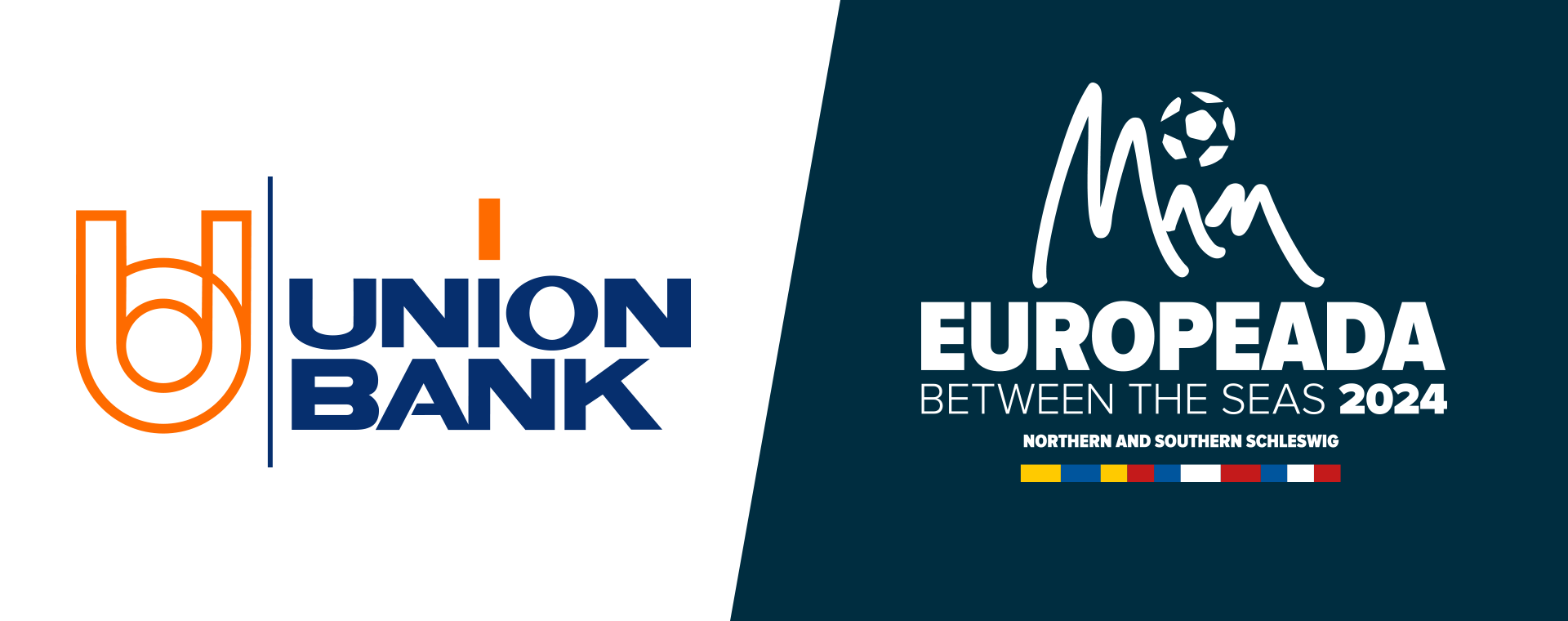
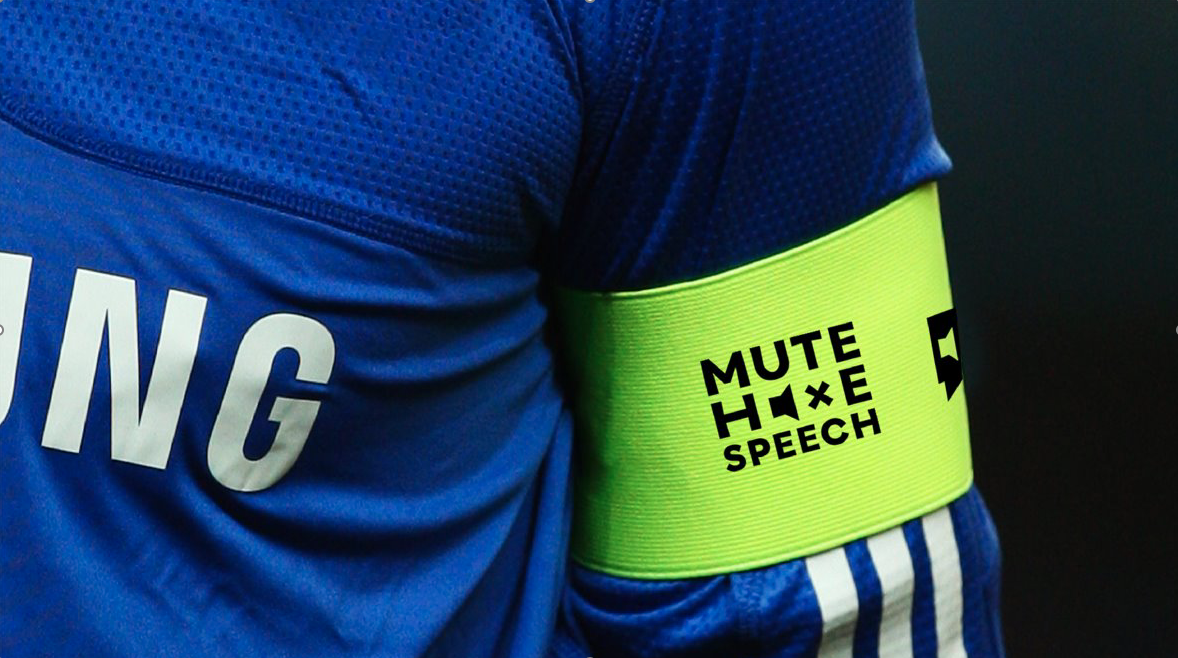
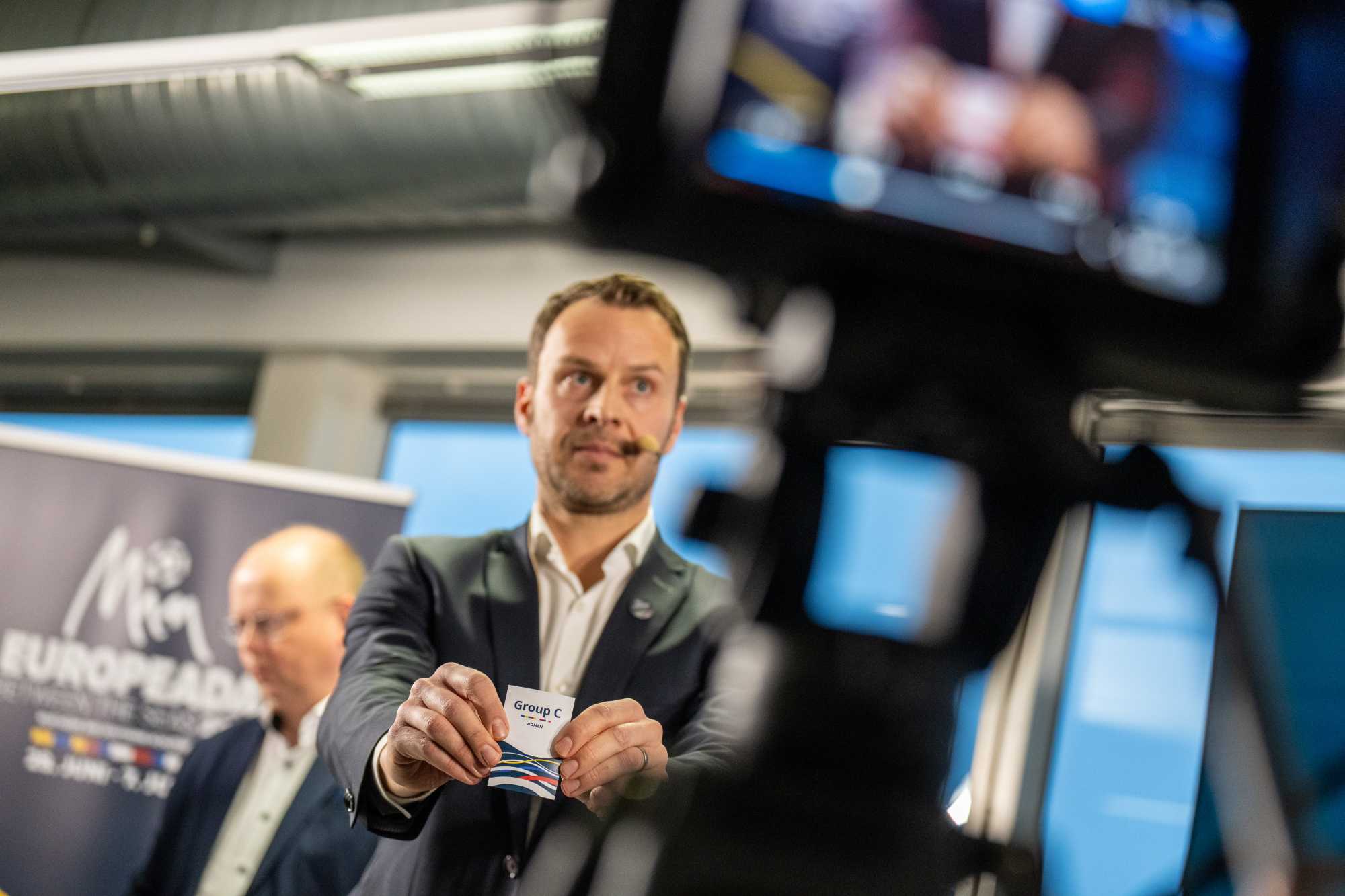
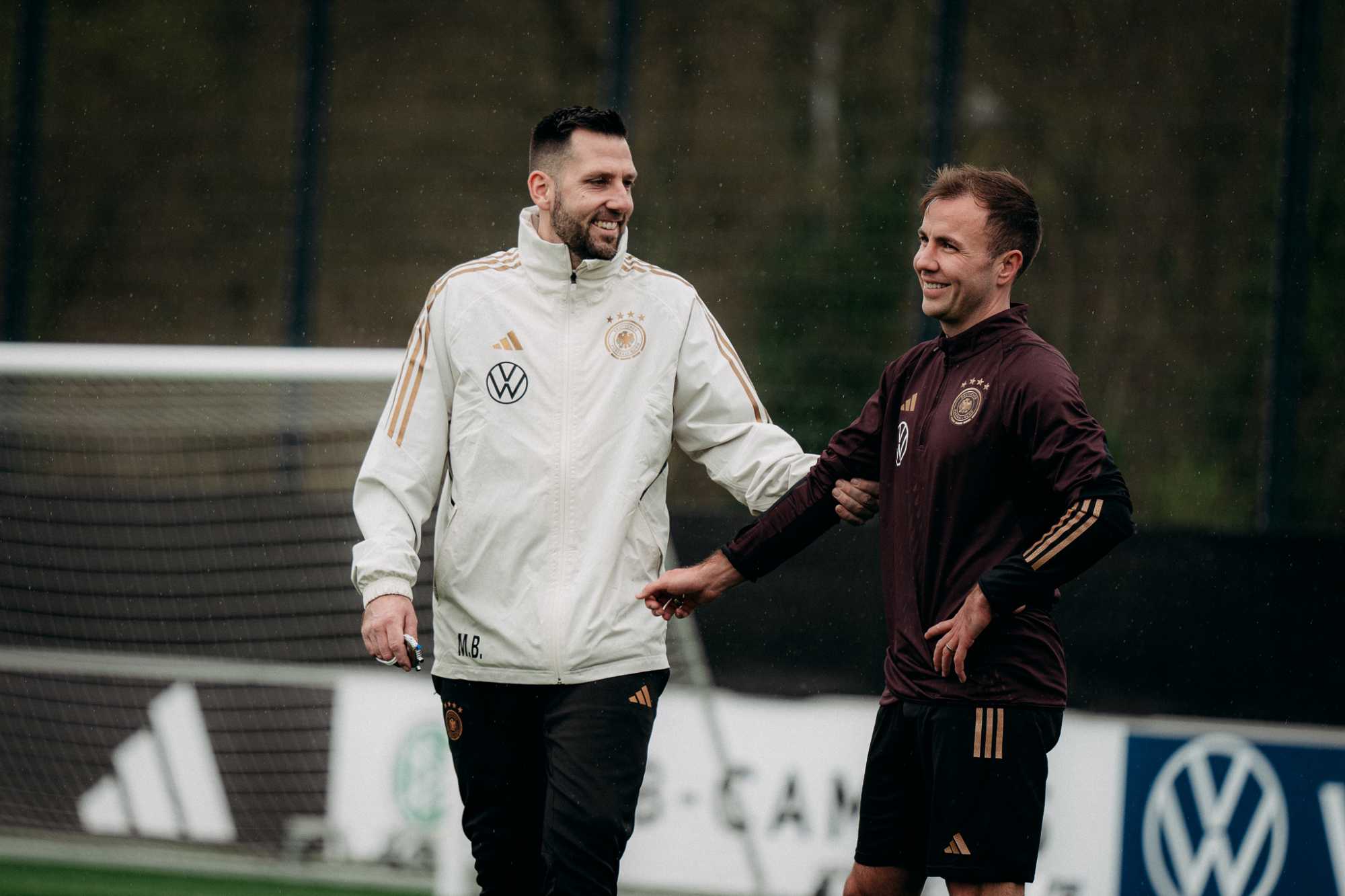
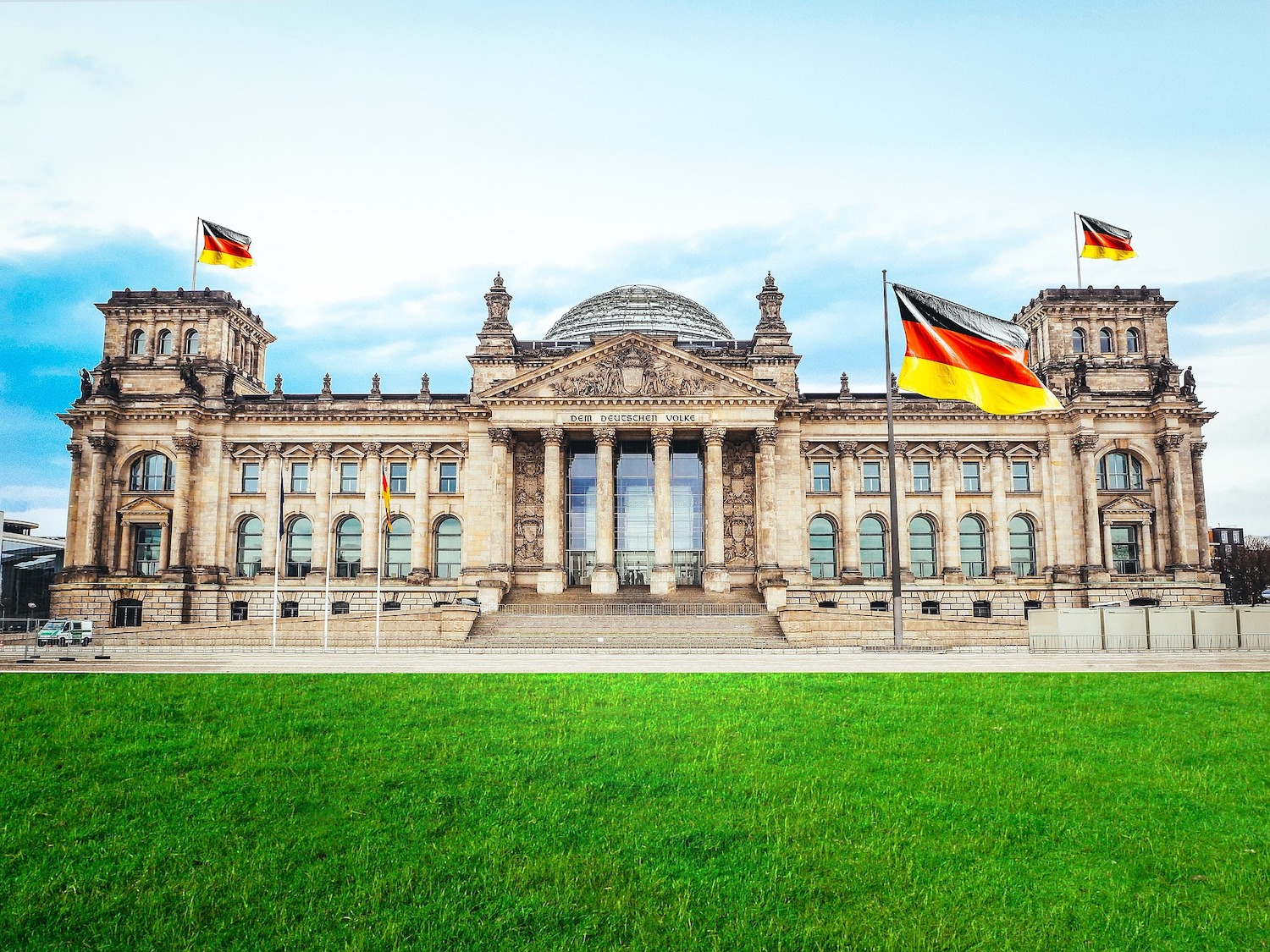
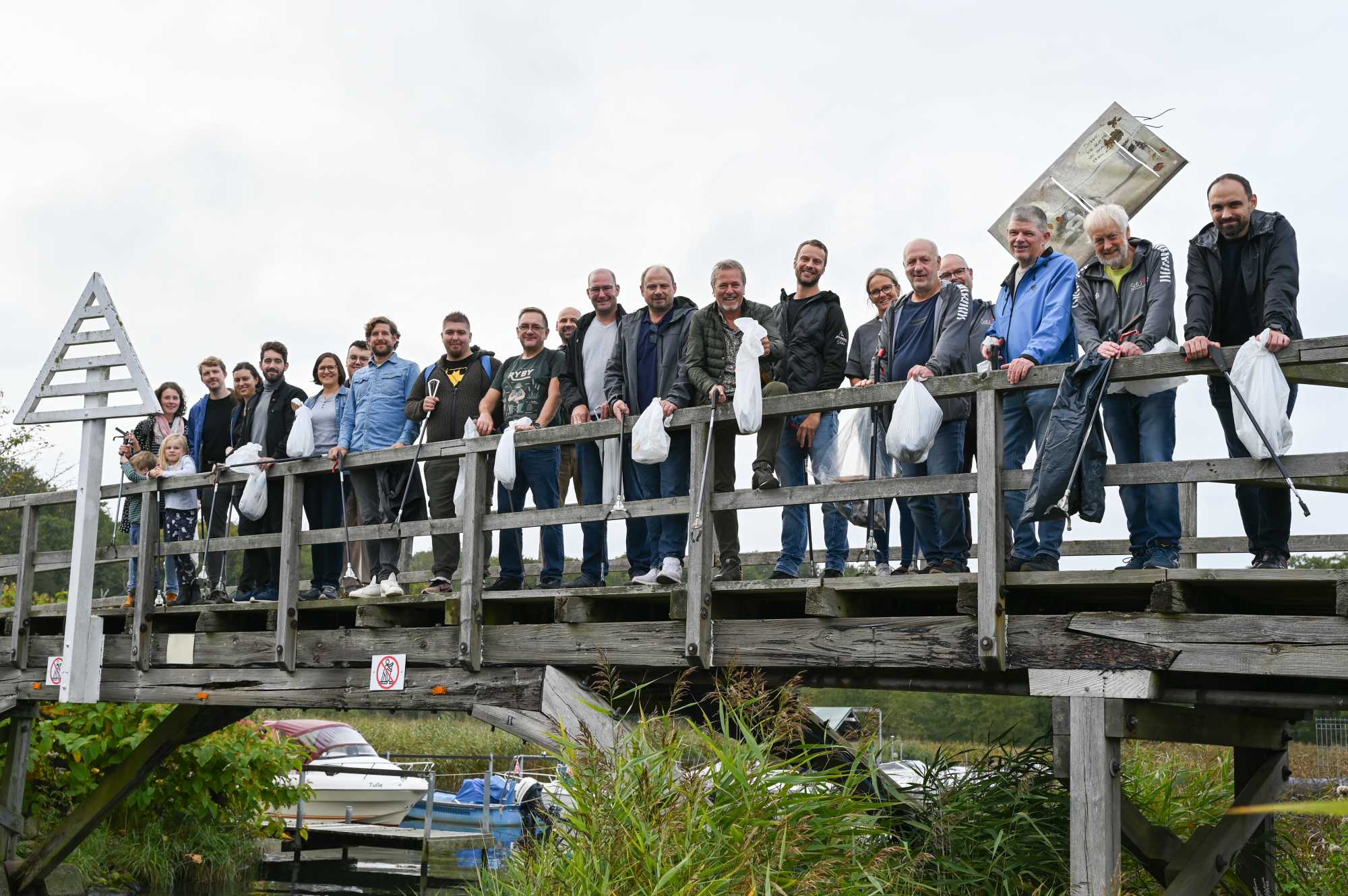
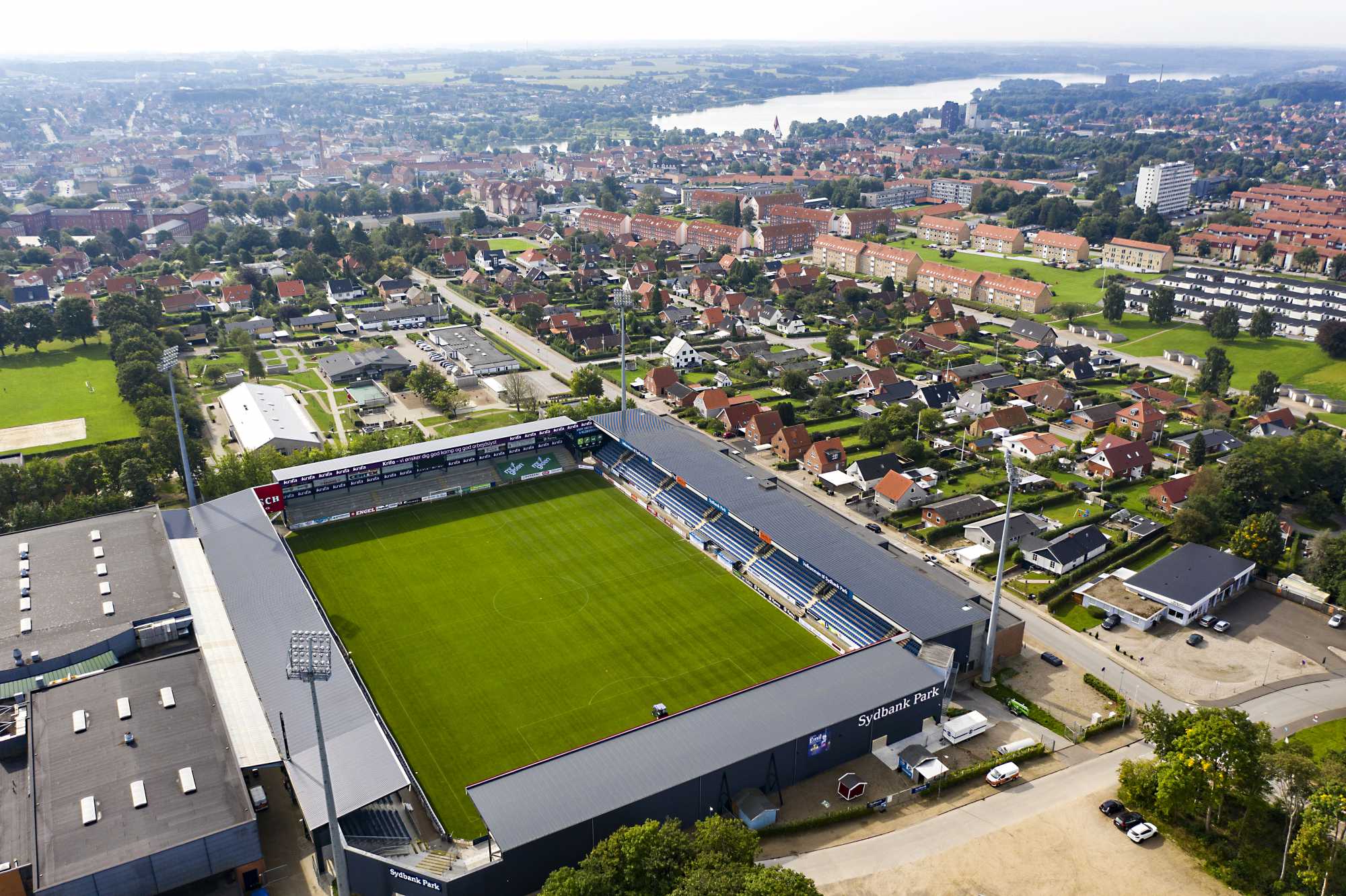
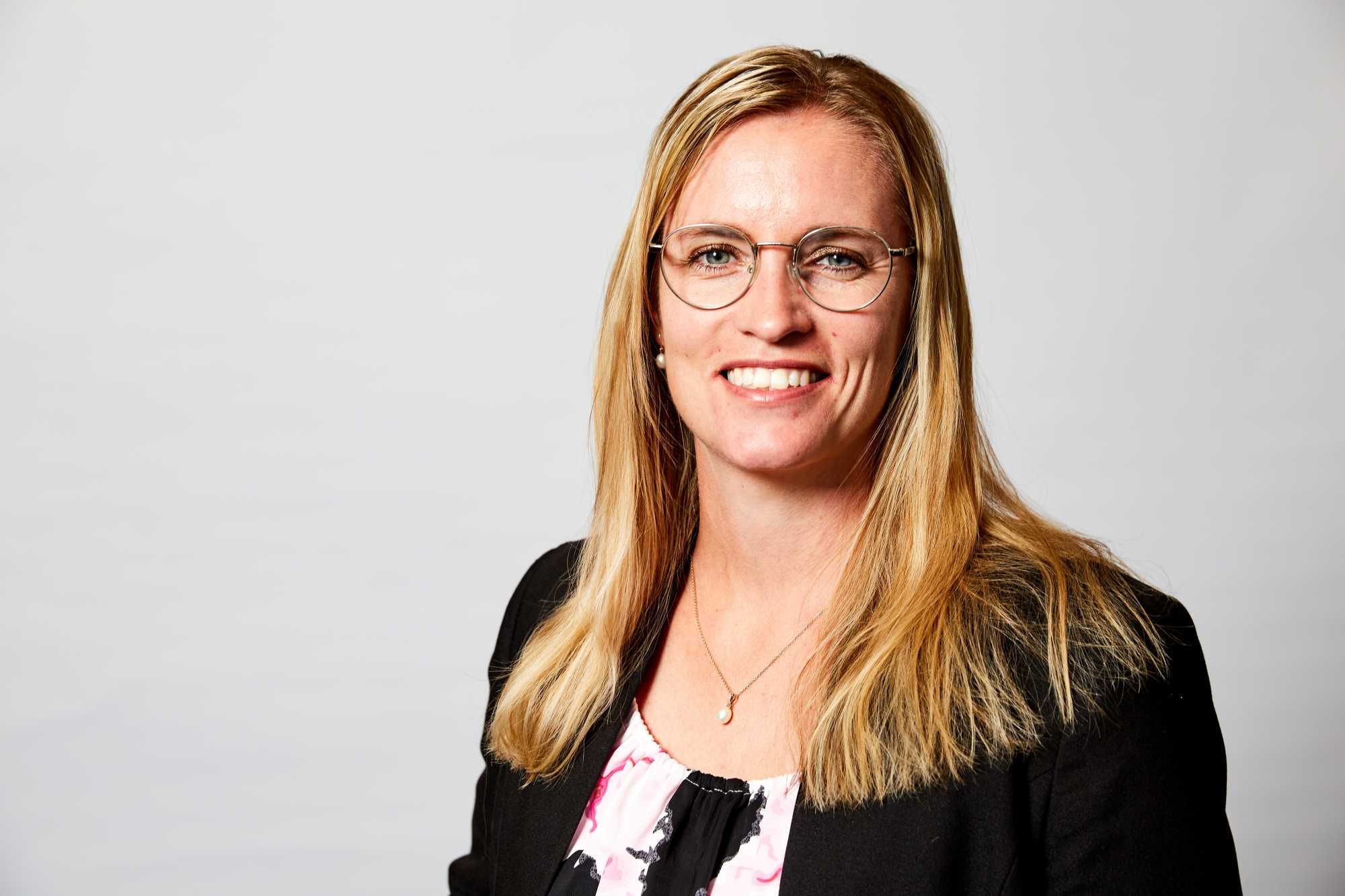
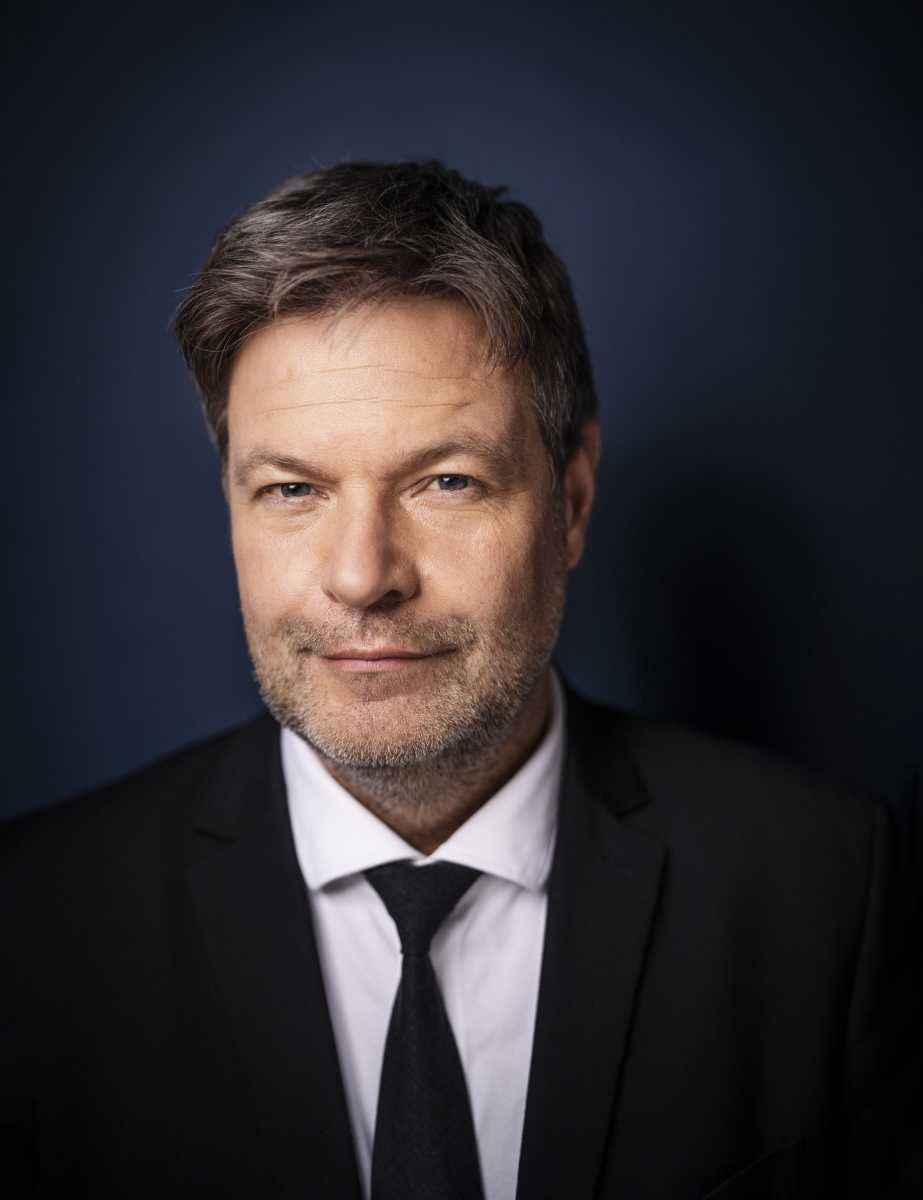
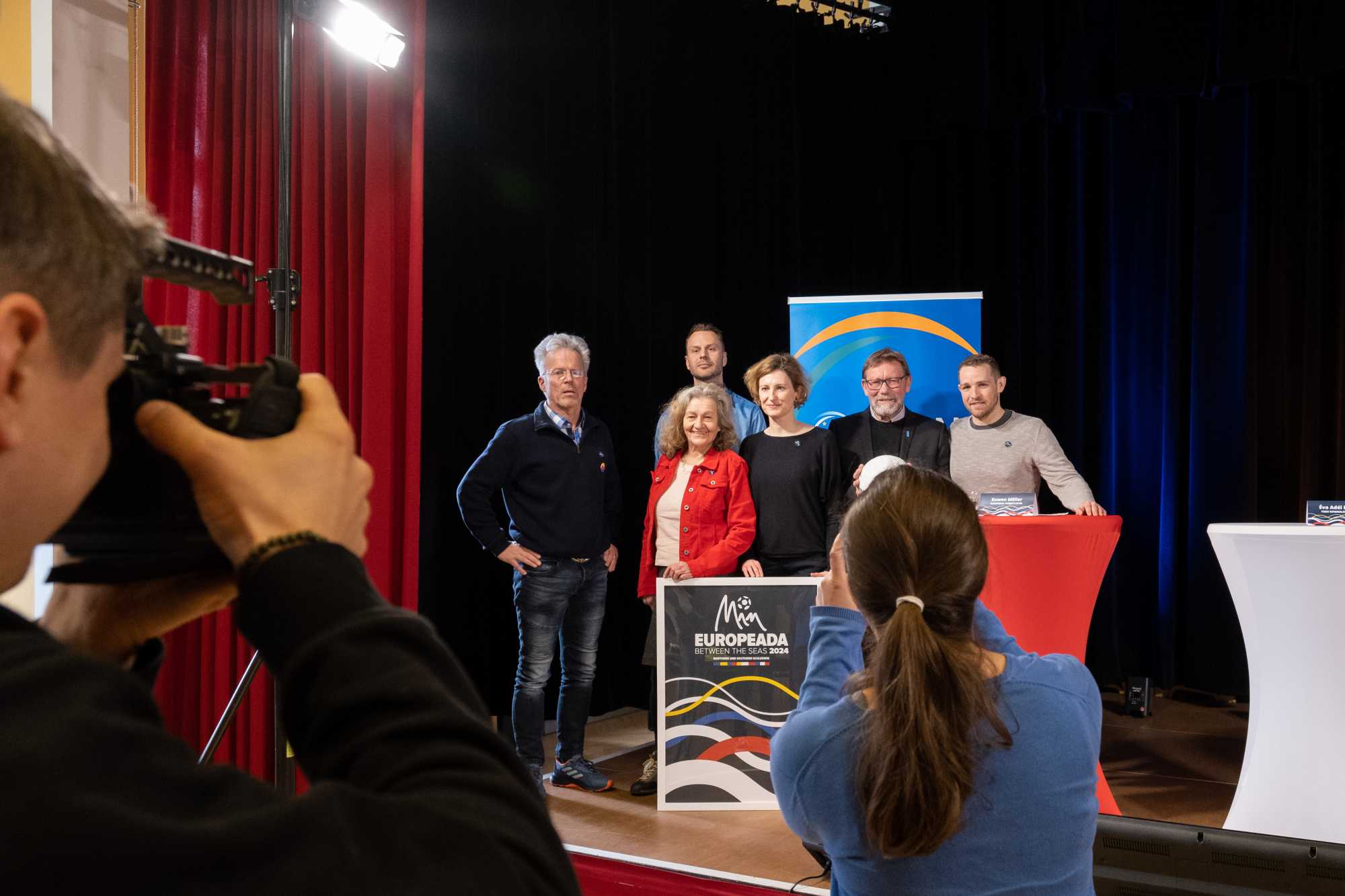



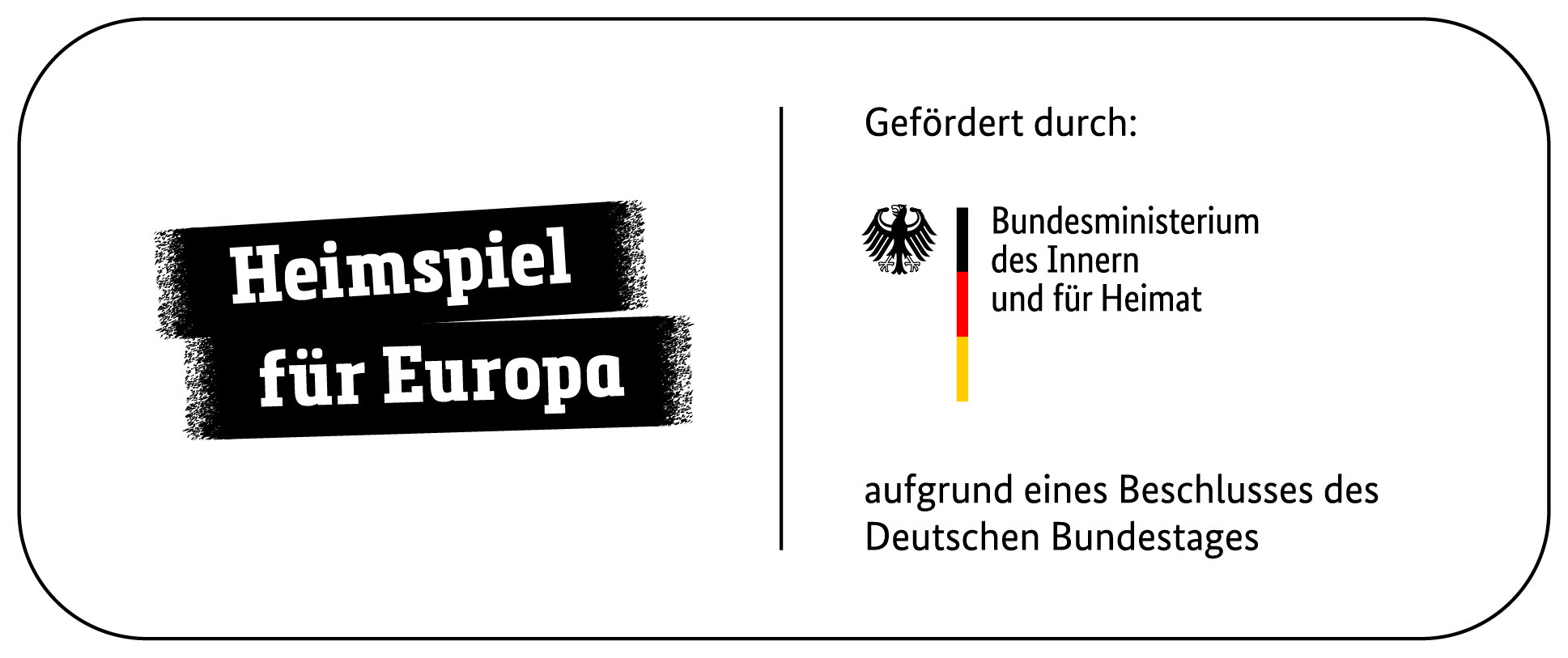
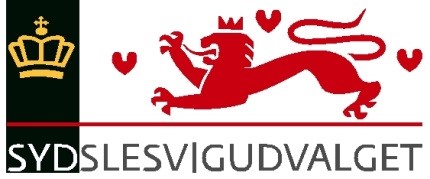



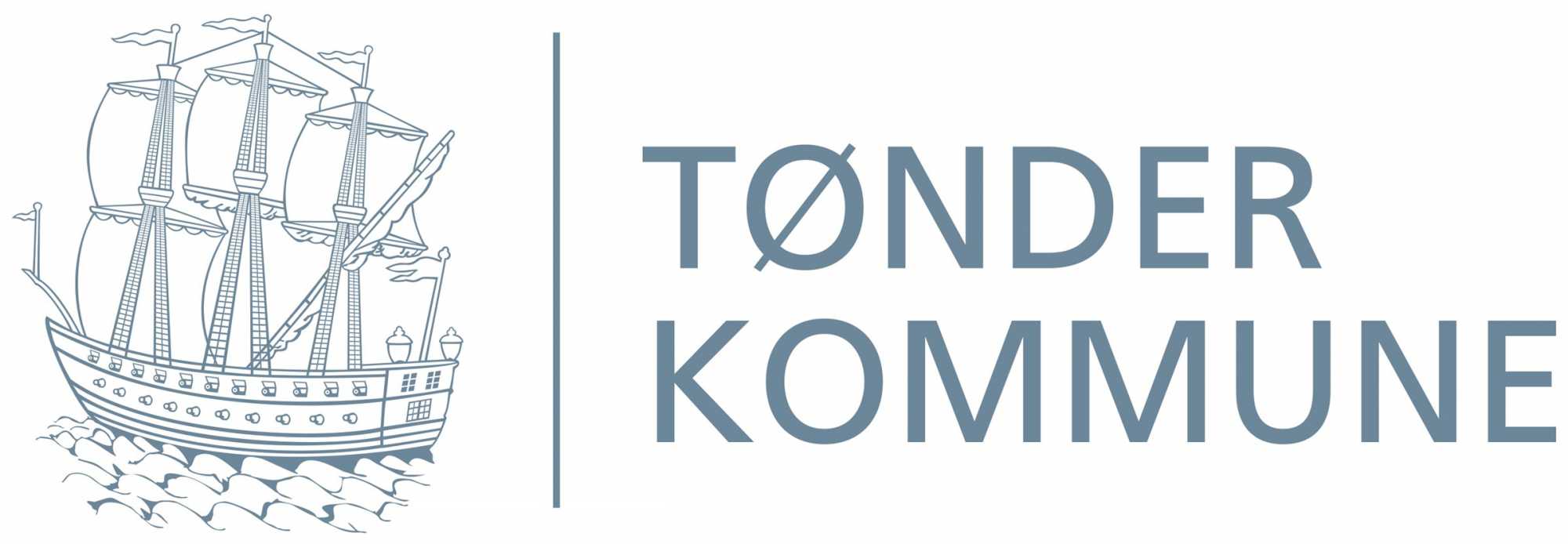
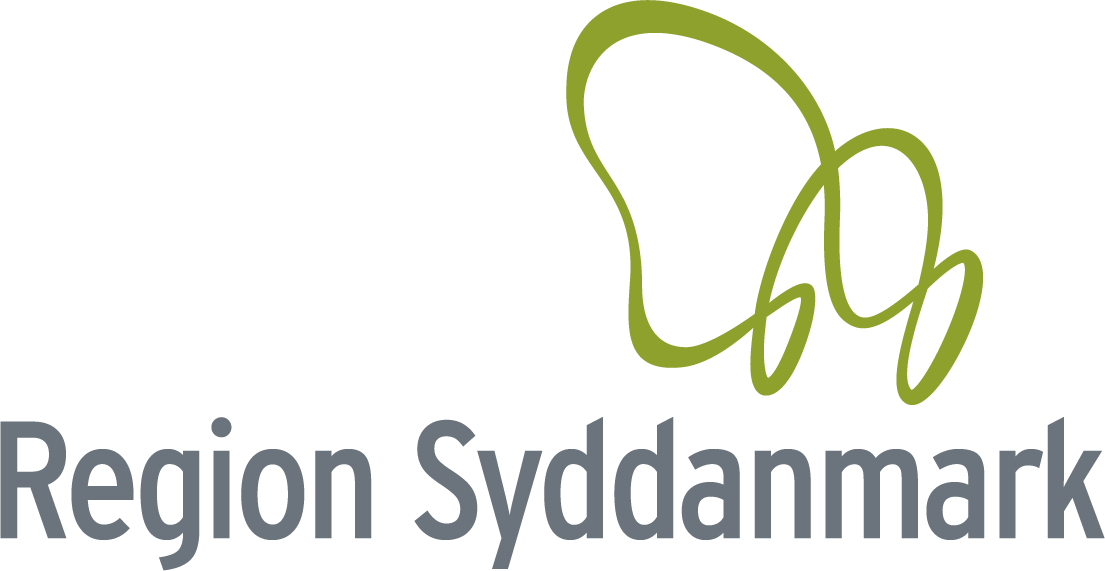
.png)



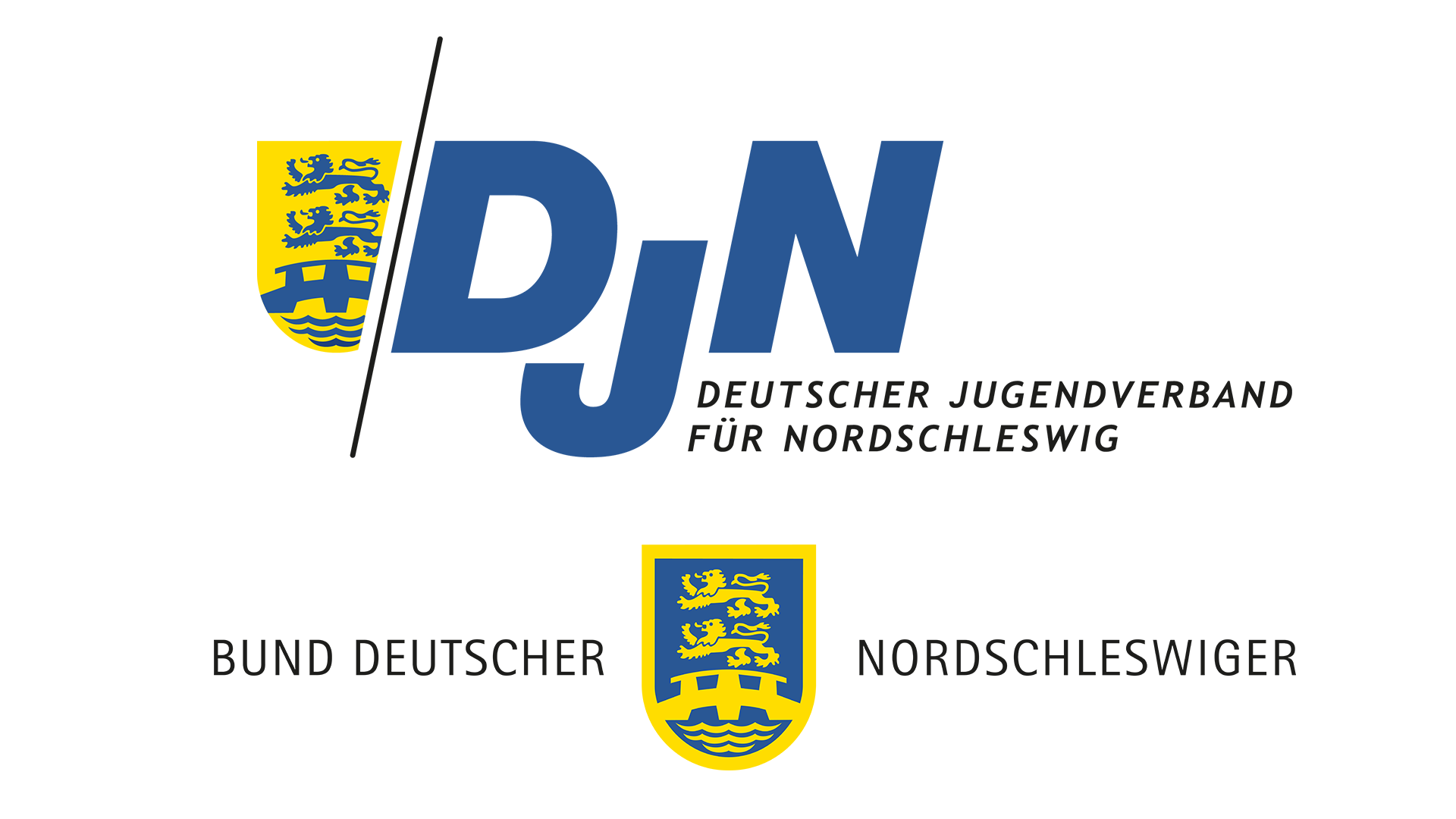
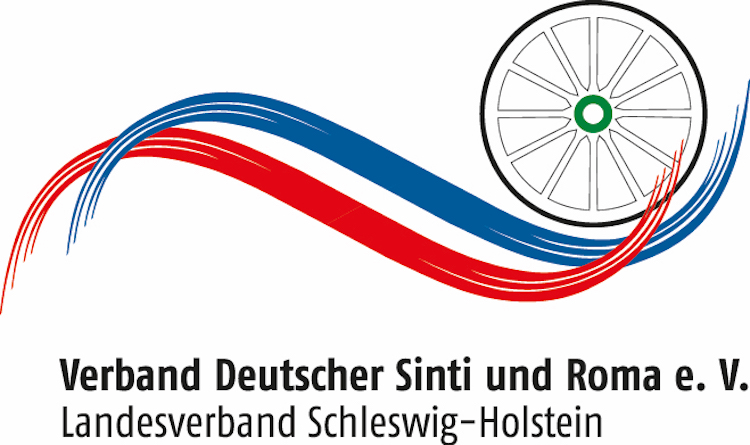

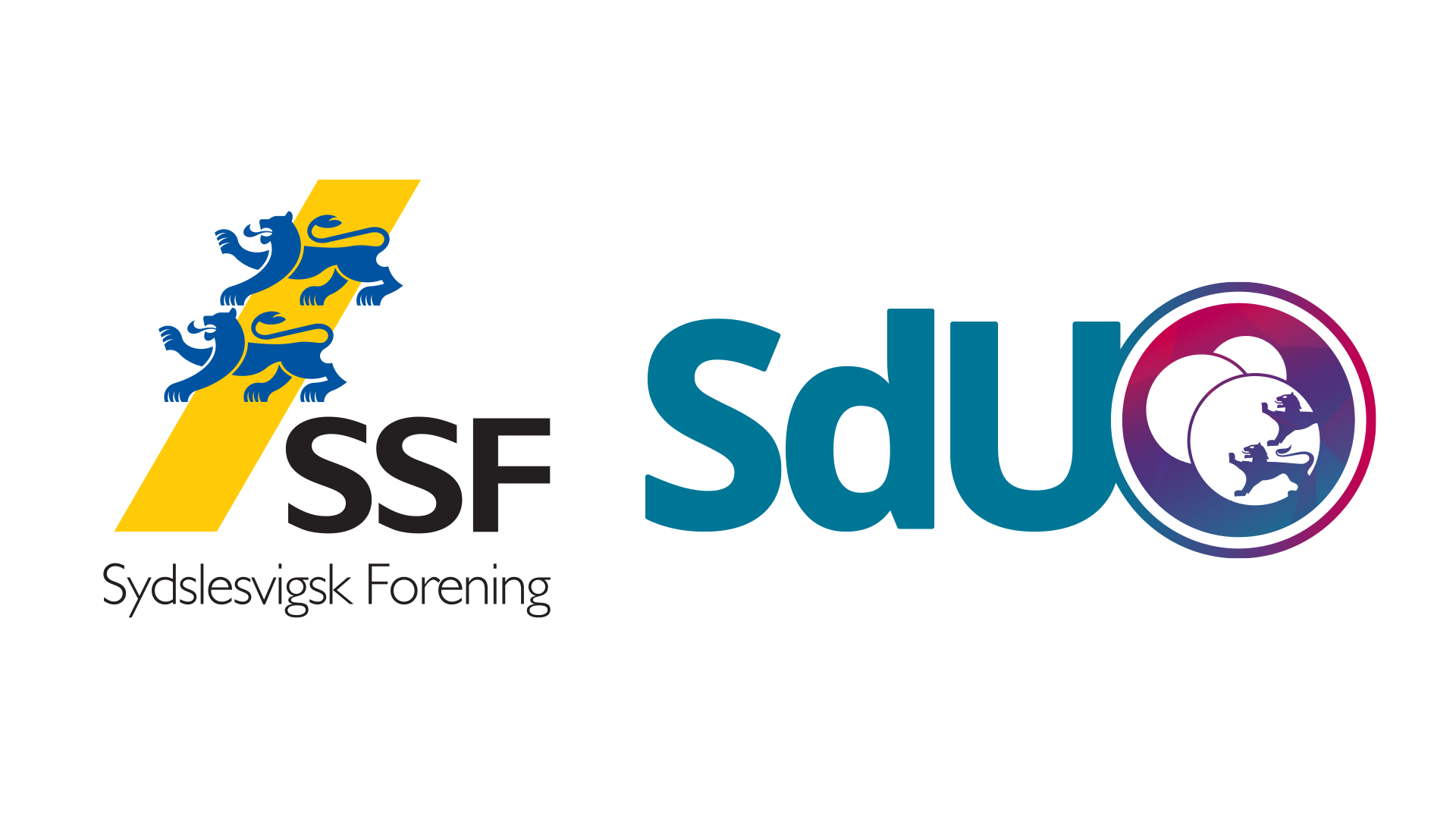
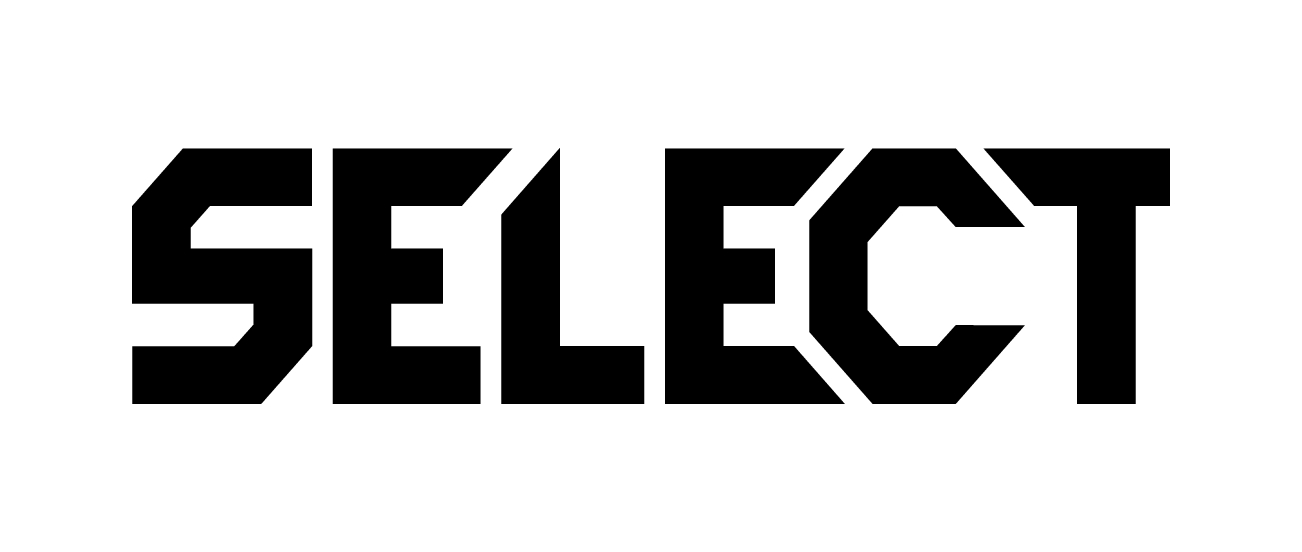

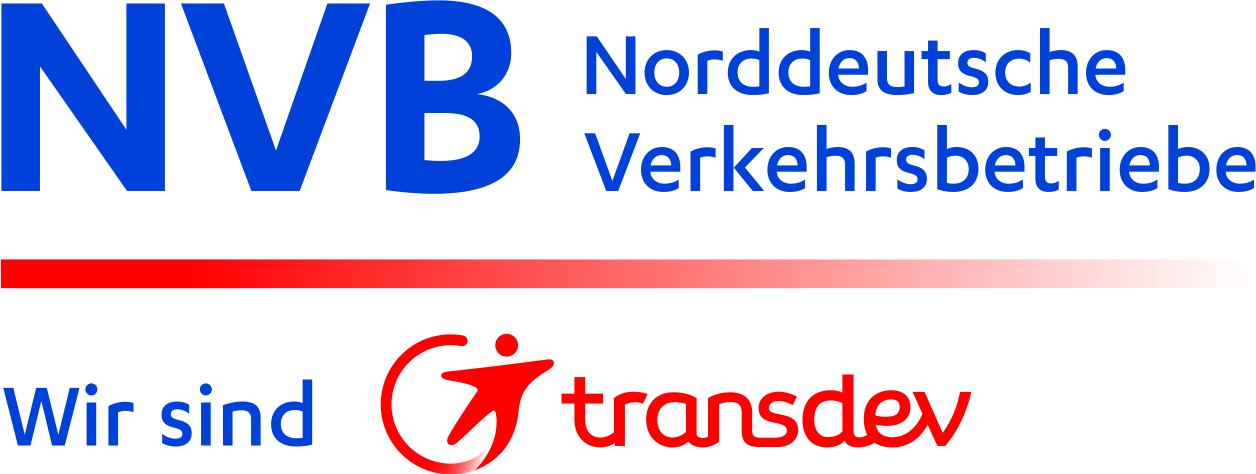

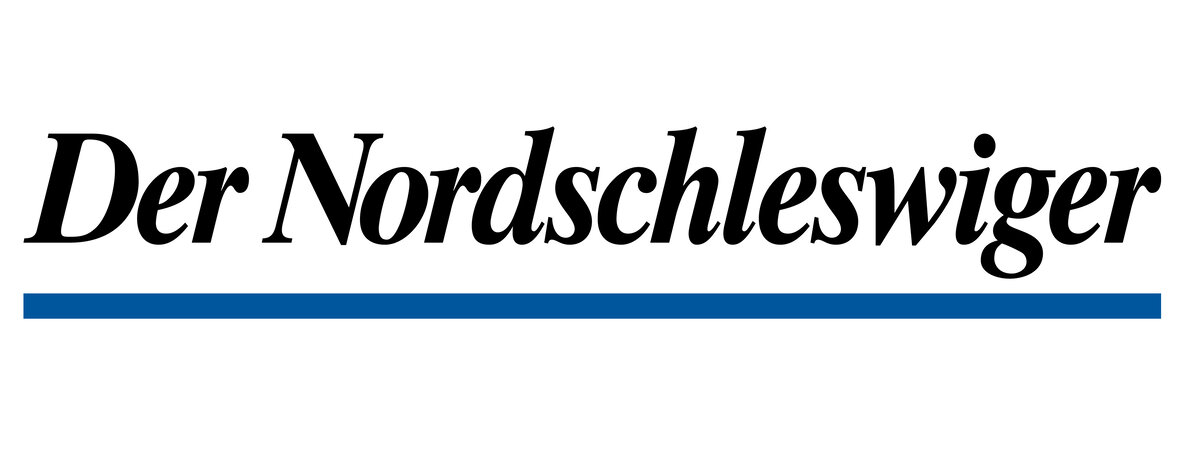




-1.png)
_(1).png)
